The 1 Move Still Haunting Every NHL Team from the Past Five Years
The 1 Move Still Haunting Every NHL Team from the Past Five Years
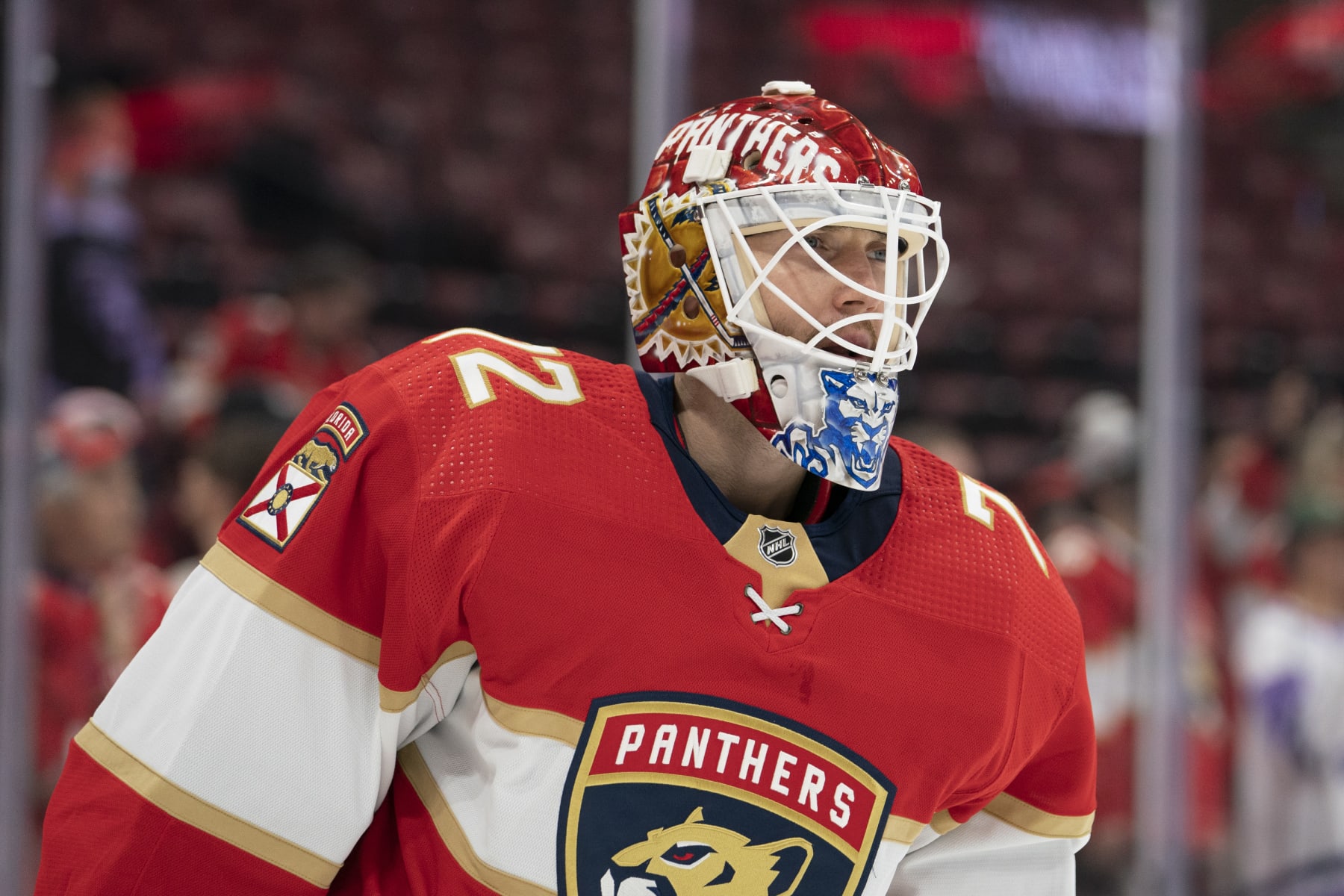
No matter how well a team is run, nobody in the NHL is perfect when it comes to their roster moves.
There are so many variables that go into what makes a trade, free-agent signing or contract extension a success or failure that it is inevitable even the very best teams and general managers are going to miss from time to time.
The key is not allowing those misses to add up.
Here we are going to look back over the past five years and determine the one move that is still haunting every NHL team.
Some looked like bad ideas at the time. Others seemed right but backfired through bad luck, injuries or by simply being the wrong fit at the wrong time.
Anaheim Ducks: John Gibson's Contract Extension
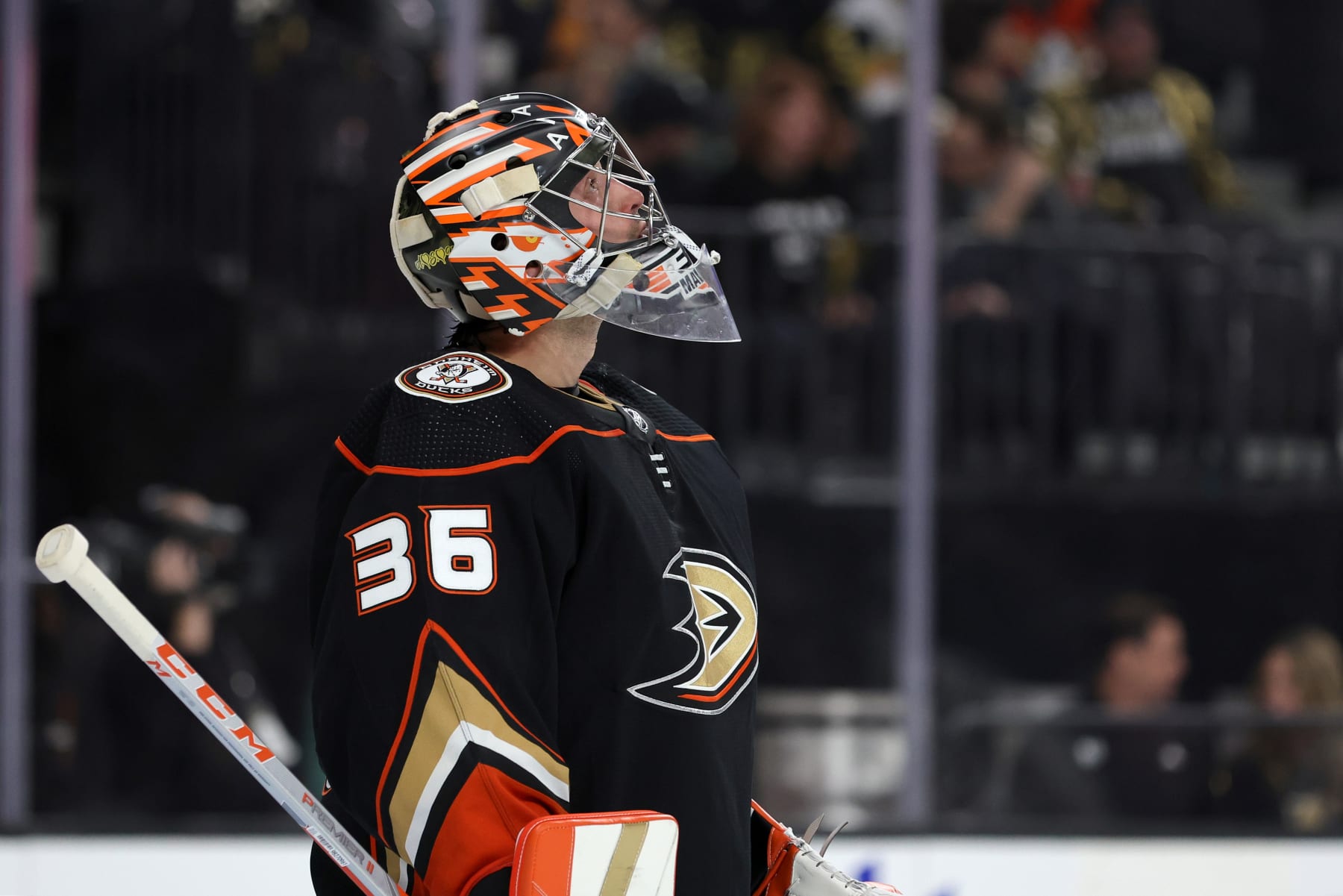
When Gibson first entered the NHL, he had a five-year run in which he was one of the NHL's best goalies and a core player for a top Western Conference contender.
In August of 2018, the Ducks rewarded him with an eight-year, $51.2 million contract extension that made him one of the league's highest-paid goalies.
They have not received that same level of production in the years since.
Since the start of the 2019-20 season, Gibson has been one of the least productive starting goalies in the NHL, owning a .903 save percentage during that stretch. That ranks 24th out of the 25 goalies who have logged at least 100 games in that time.
His $6.4 million salary-cap hit is the fourth-highest among goalies, and it still runs for another four full seasons after this one with a modified no-trade clause. Goalies can be the most impactful players in the NHL, but if you are going to pay top-dollar for one, you better be sure you are getting one of the elites. The Ducks are not getting that level of play for their investment, and it is one of the many factors that has held them back.
Arizona Coyotes: Taylor Hall Trade
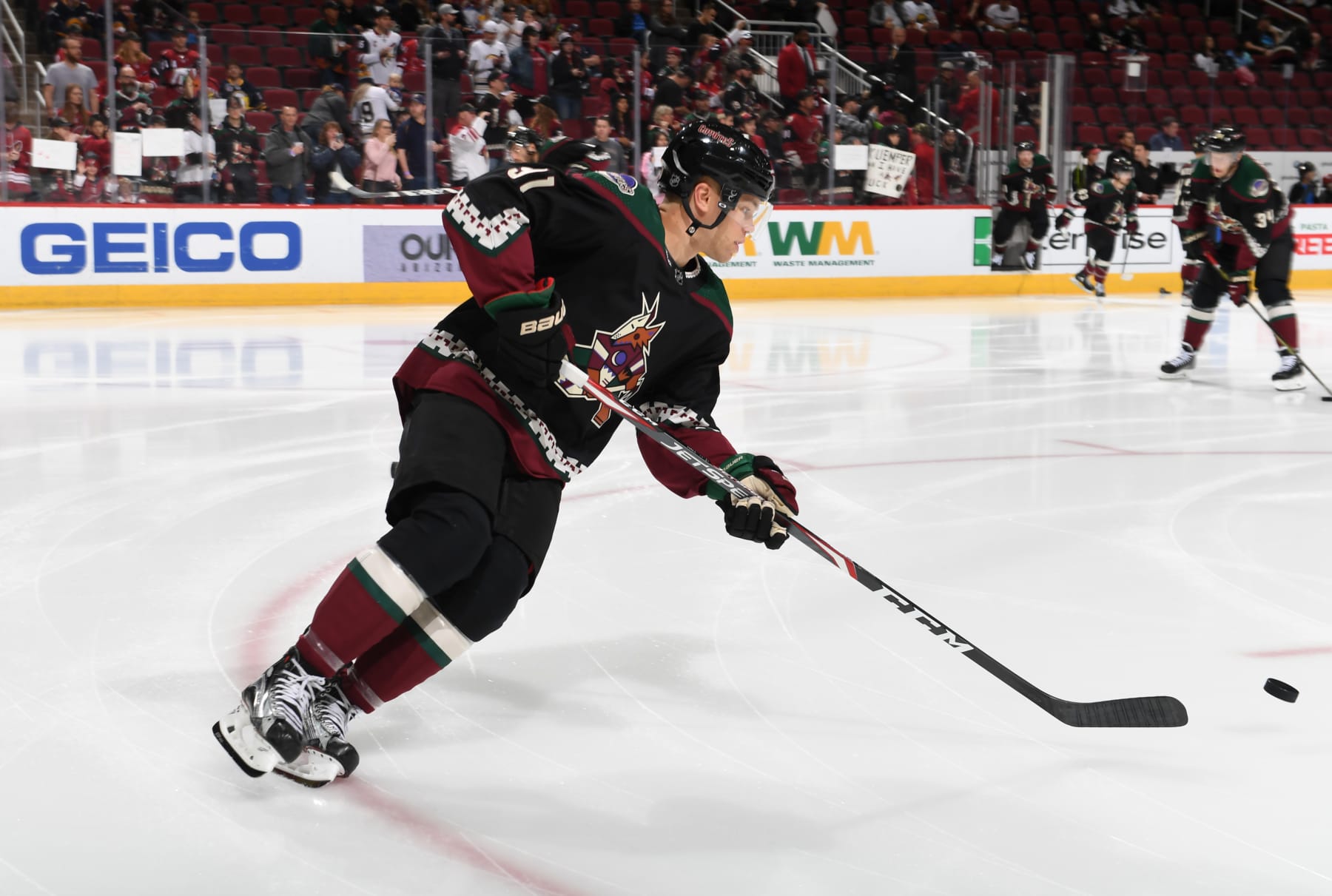
The Coyotes made the surprising move to be buyers during the 2019-20 season and added Taylor Hall—a pending unrestricted free agent—from the New Jersey Devils for a package of prospects and draft picks.
The Coyotes were not a contender at the time, and Hall was not going to put them over the top.
He was a very strong addition, but it did not really do anything to advance the short- or long-term prospects of the franchise. A team that should have been rebuilding, and currently is rebuilding, gave up a first-round pick that turned out to be Dawson Mercer, who has emerged as a key player in the Devils' resurgence.
Hall was a temporary shot in the arm, but the Coyotes could have certainly used that pick.
Boston Bruins: Rick Nash Trade
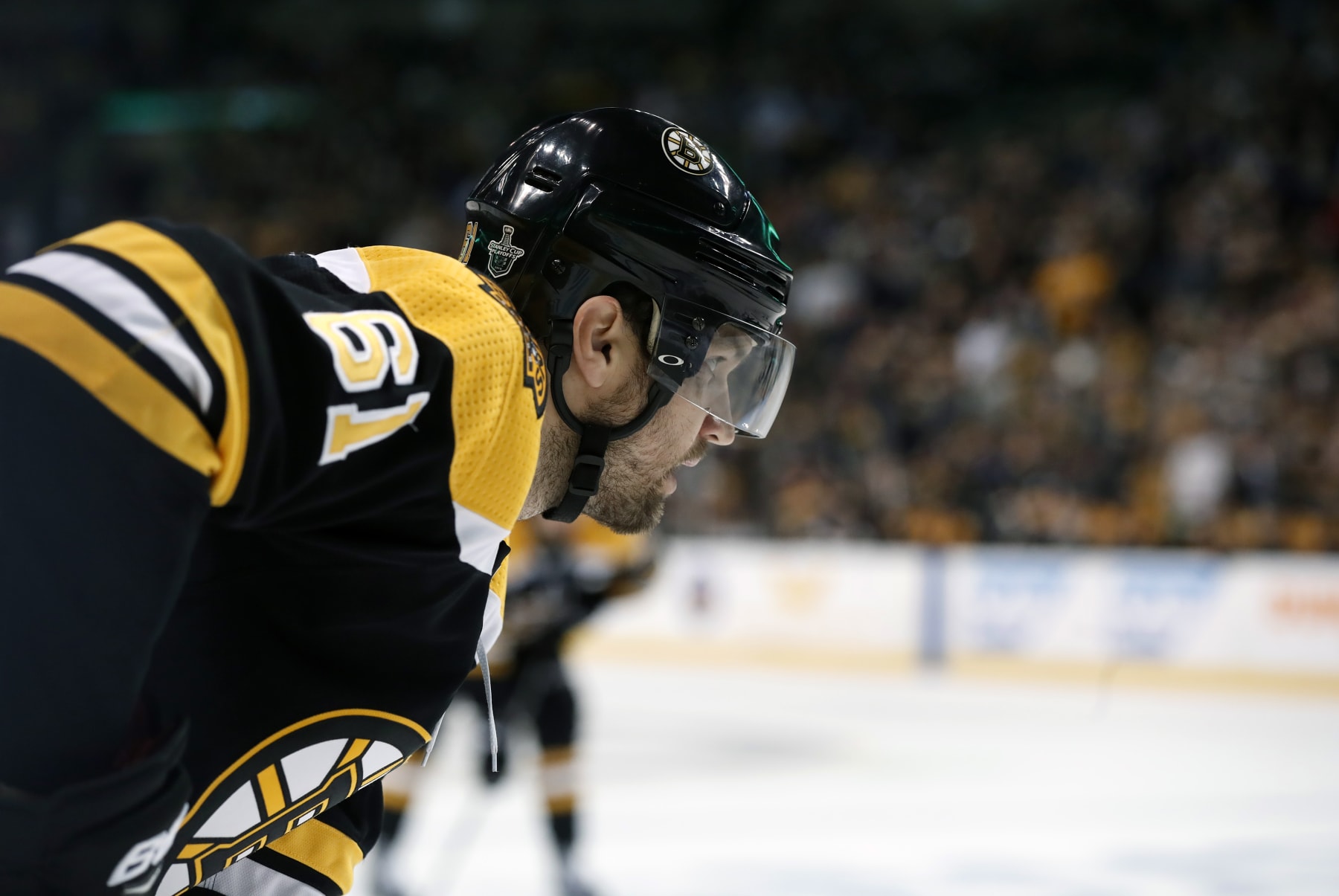
Just prior to the 2018 NHL trade deadline the Bruins acquired Rick Nash from the New York Rangers in an attempt to add some much-needed scoring depth and put their lineup over the top in the Eastern Conference.
They sent Ryan Lindgren, Ryan Spooner, Matt Beleskey and a first-round pick to the Rangers in exchange for Nash's expiring contract.
Nash ended up not making a significant impact at the end of his career, while Lindgren has gone on to be a key player on the Rangers defense.
It was a very worthwhile gamble for the Bruins because most of what they traded was nothing more than spare parts, bad contracts and a late first-round draft pick. But Lindgren's play and cheap contract the past few years would have been nice to have in Boston. Especially as the Bruins struggled with defense depth in the 2019 Stanley Cup Final against St. Louis and had to replace Torey Krug when he left in free agency following the 2020 season.
Lindgren is now a 20-minute-per-night player for a Rangers team that has emerged as a Stanley Cup contender.
Buffalo Sabres: Jeff Skinner's Contract
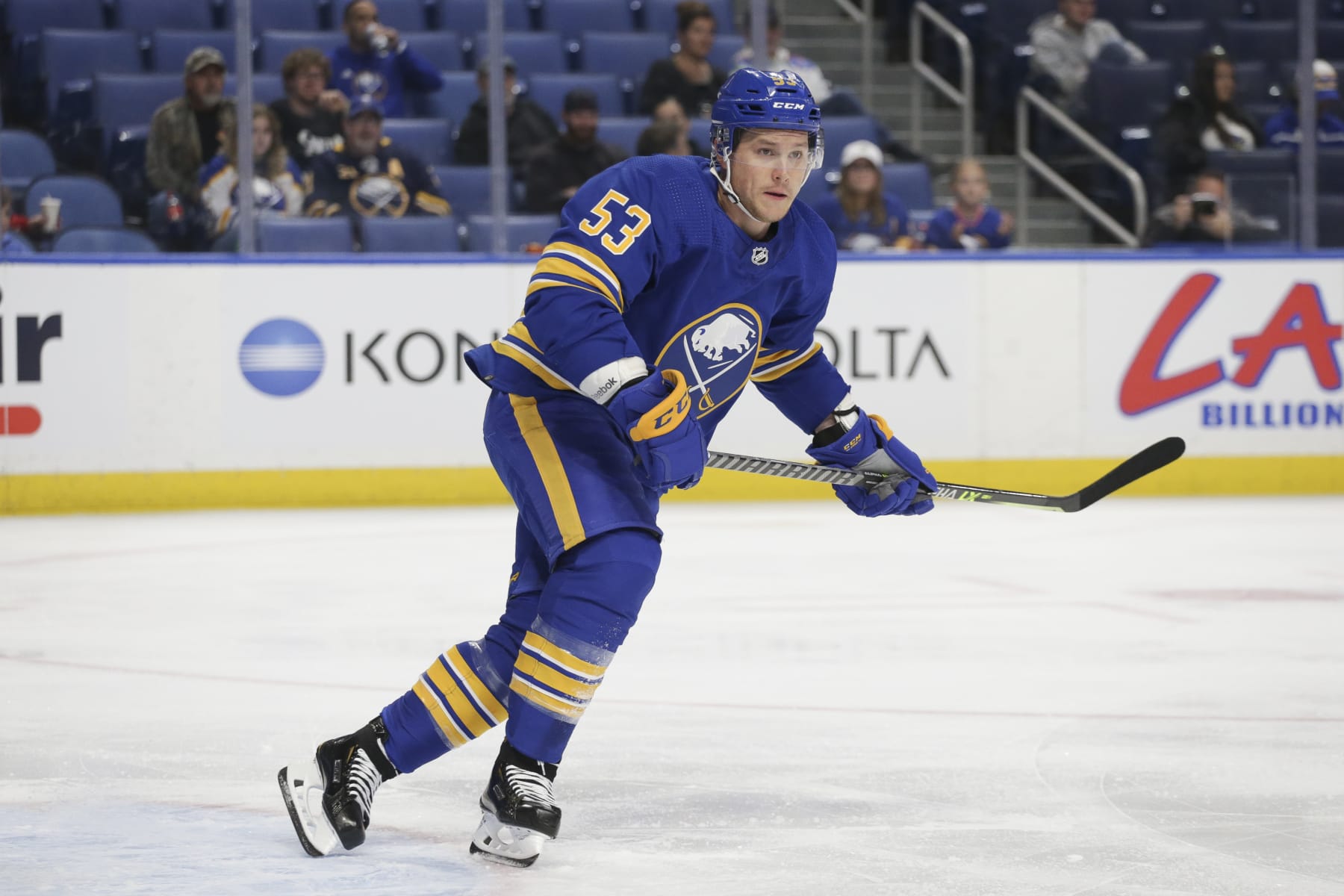
The Sabres acquired Skinner in a trade with the Carolina Hurricanes prior to the 2018-19 season, paired him with Jack Eichel on their top line and watched him have a career year that saw him score 40 goals.
That performance convinced the Sabres to sign Skinner to an eight-year, $72 million contract extension to keep him from hitting unrestricted free agency with the hope that he and Eichel could be their top-line duo for the next decade.
Everything fell apart after that.
Eichel ended up getting traded after an ugly fallout with the organization, while Skinner completely fell apart over the following two years. He did have a nice bounceback season in 2021-22 by scoring 33 goals, but the Sabres still owe him $9 million per season over the next five years while he is now on the wrong side of 30.
A for effort on the idea, but it just has not worked out.
Calgary Flames: Milan Lucic Trade
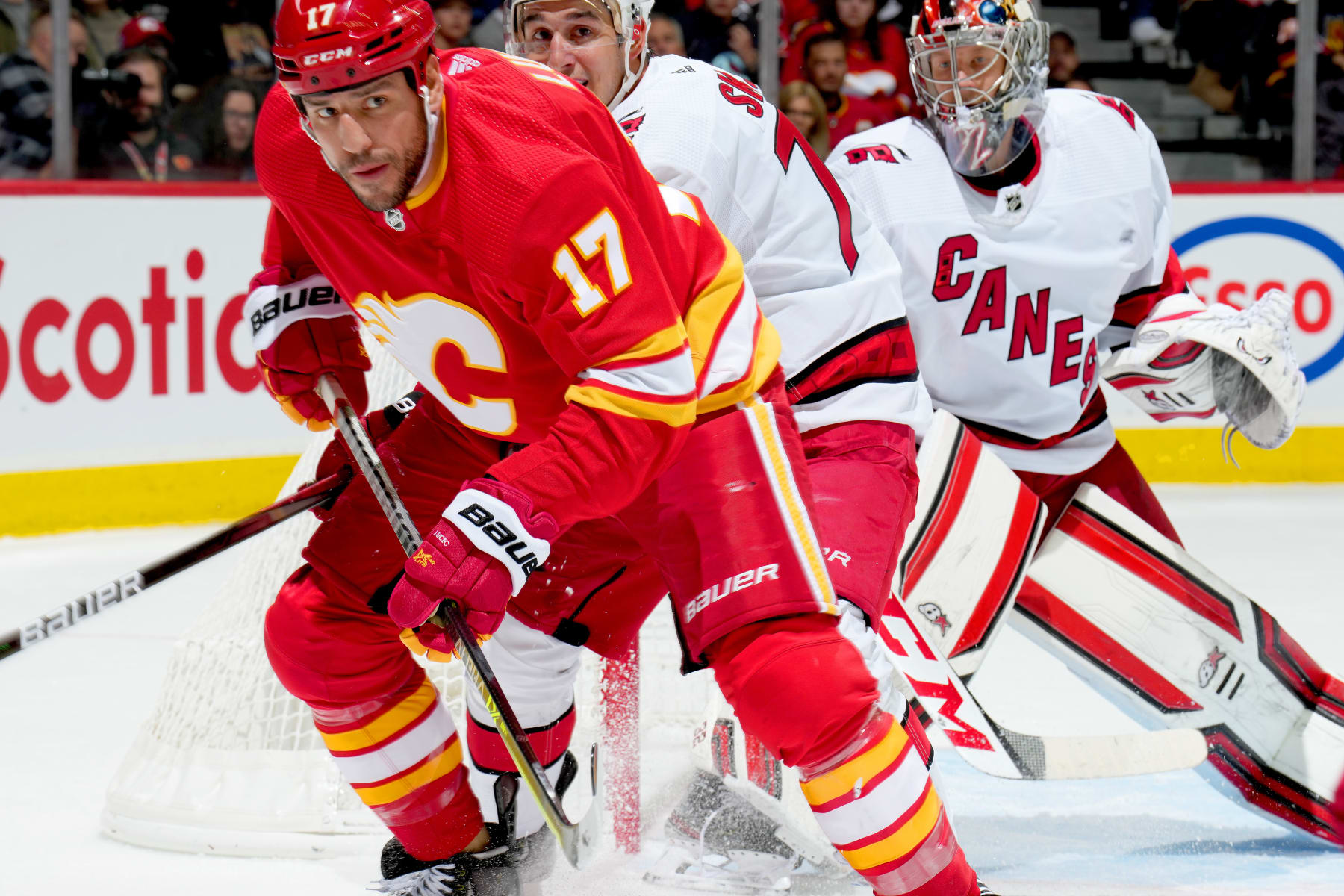
The Flames front office has been hitting home run after home run over the past couple of years and really knocked a couple out of the park this offseason by bringing in Jonathan Huberdeau, MacKenzie Weegar and Nazem Kadri.
One miss they had in recent years, though: Taking on Milan Lucic's contract in a trade with the Edmonton Oilers.
This was a swap of undesirable contracts, with James Neal going to Edmonton.
At his peak Lucic, was one of the league's elite power forwards, but he has badly worn down over the years and carries a pretty significant salary-cap number ($6 million per season) for what he produces. He is still a massive presence on the ice and can play a very physical game, but for $6 million per year you need more production than that. Even though the Flames had a strong offseason, they still could have used that extra salary-cap space.
Carolina Hurricanes: Jake Gardiner Signing
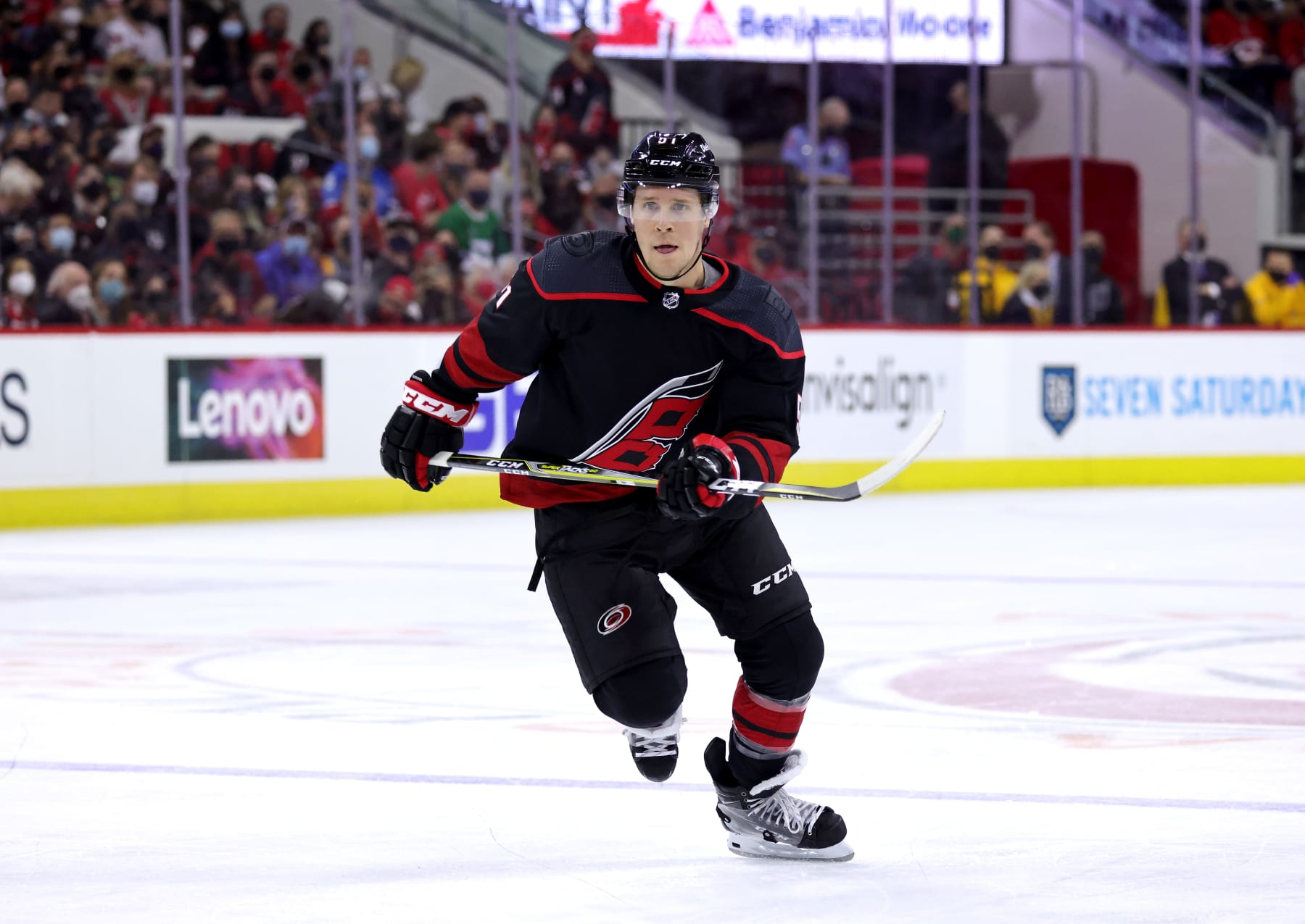
The Hurricanes rarely miss on their moves, but this is one that can mostly be chalked up to some bad luck. A lot of bad luck, actually.
They signed Gardiner to a four-year contract in free agency prior to the 2019-20 season to help bolster an already strong defense. Gardiner had been a very good—and extremely underappreciated player—throughout his career in Toronto and should have been a great fit in Carolina's style of play. When healthy, he is a smooth skater, moves the puck well, drives possession and can even chip in some offense. After one year, he looked like he was on track toward being a big addition.
The problem: Injuries have limited him to just 94 games since the start of the 2019-20 season, and the Hurricanes were never able to get the player they hoped.
In hindsight, Gardiner was probably a luxury the Hurricanes did not need as their defense was already very strong, and when you add the injuries, it just has not worked.
Sometimes that happens.
All things considered, if this is the worst move your team has over a five-year stretch, you are probably doing something very right.
Chicago Blackhawks: Seth Jones Trade
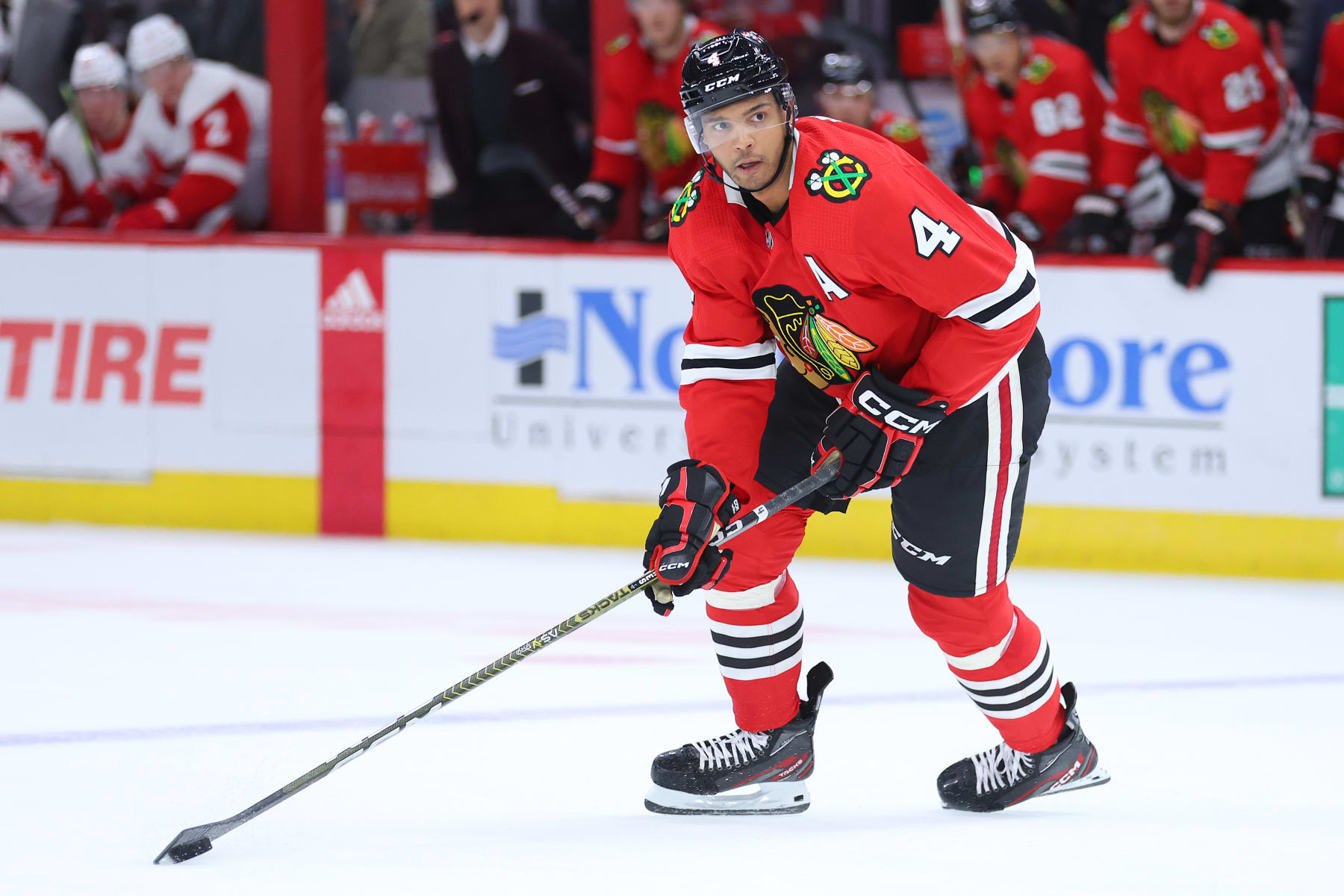
This is a complicated one because Seth Jones does have some value. He is not a bad player and is not going to totally sink the team through poor play.
But Chicago timed this poorly and gave up more value than they were getting back in both the trade and contract.
When the Blackhawks added Jones, it was clear the team was headed toward a rebuild. They were not just one player away from contending.
They ended up giving up a promising young player in Adam Boqvist and two top-12 picks (Columbus selected Cole Sillinger and David Jiricek) for Jones and a No. 30 overall pick while also signing Jones to a $9 million per year contract.
It is just a terrible misuse of assets for a player who, while good and valuable, is not going to move the needle on a rebuild. Boqvist and the two top-12 picks would have had more value long-term.
That contract also impacted their ability to re-sign Alex DeBrincat, which could have played a role in giving him away to the Ottawa Senators at the NHL draft this year.
Colorado Avalanche: Ryan Graves Trade
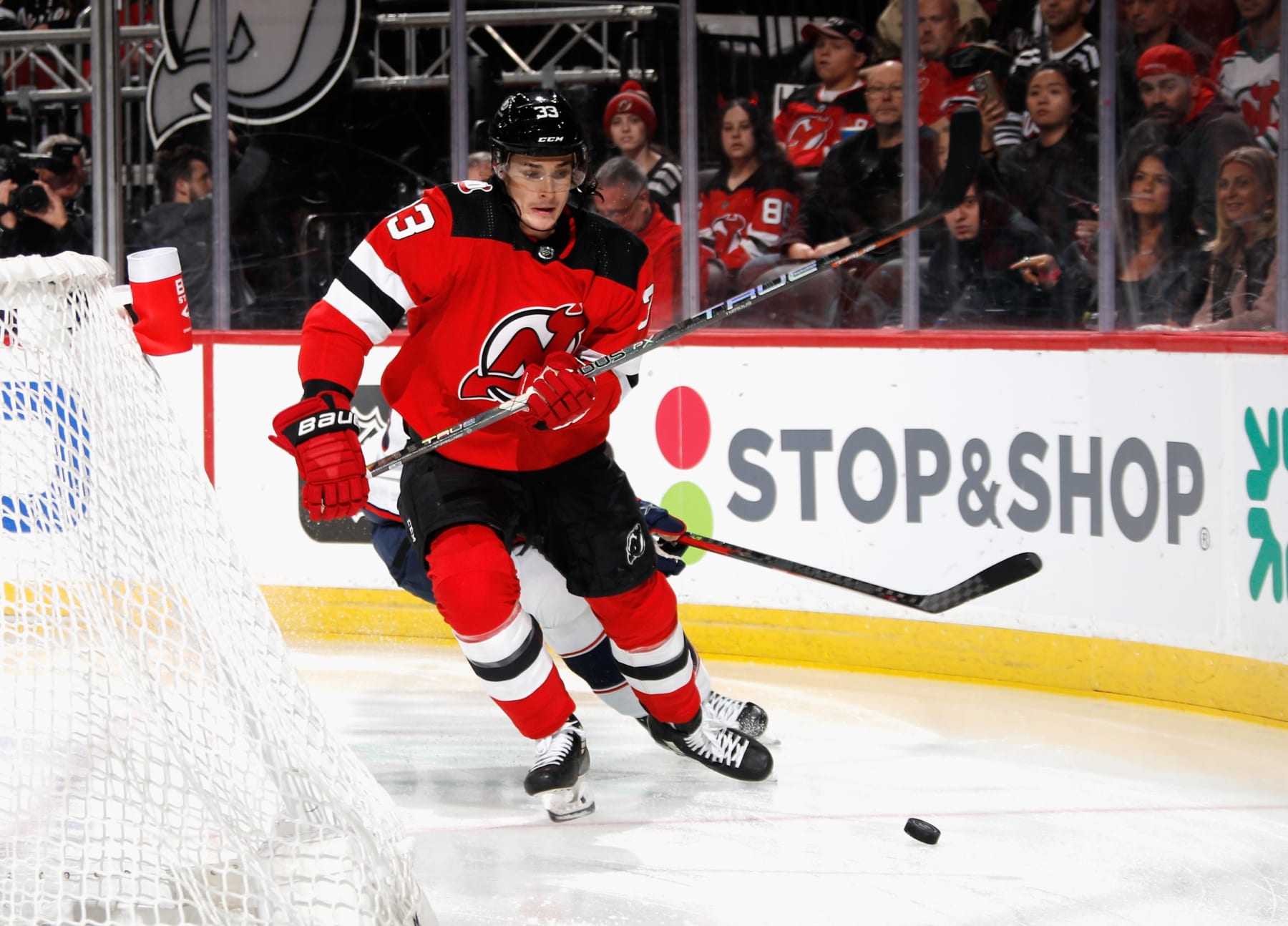
You have to really stretch to find a haunting move for the Colorado Avalanche because all Joe Sakic and company do is win trades and find free-agent bargains.
The worst move they have made over the past few years is one that has probably been completely inconsequential to the roster, and that was trading Ryan Graves to New Jersey following the 2020-21 season for a prospect and a second-round pick.
Even then, it is probably a huge shoulder shrug for Avalanche fans.
Graves was never going to be anything more than the fifth- or sixth-best defenseman in Colorado. The only real criticism here is probably the fact that they did not get much back in return, and it forced them to add Josh Manson from Anaheim and then re-sign him to a long-term deal.
Would you rather have Graves at $3.6 million this season or Manson at $4.5 million for the next four years?
Columbus Blue Jackets: Trading Anthony Duclair
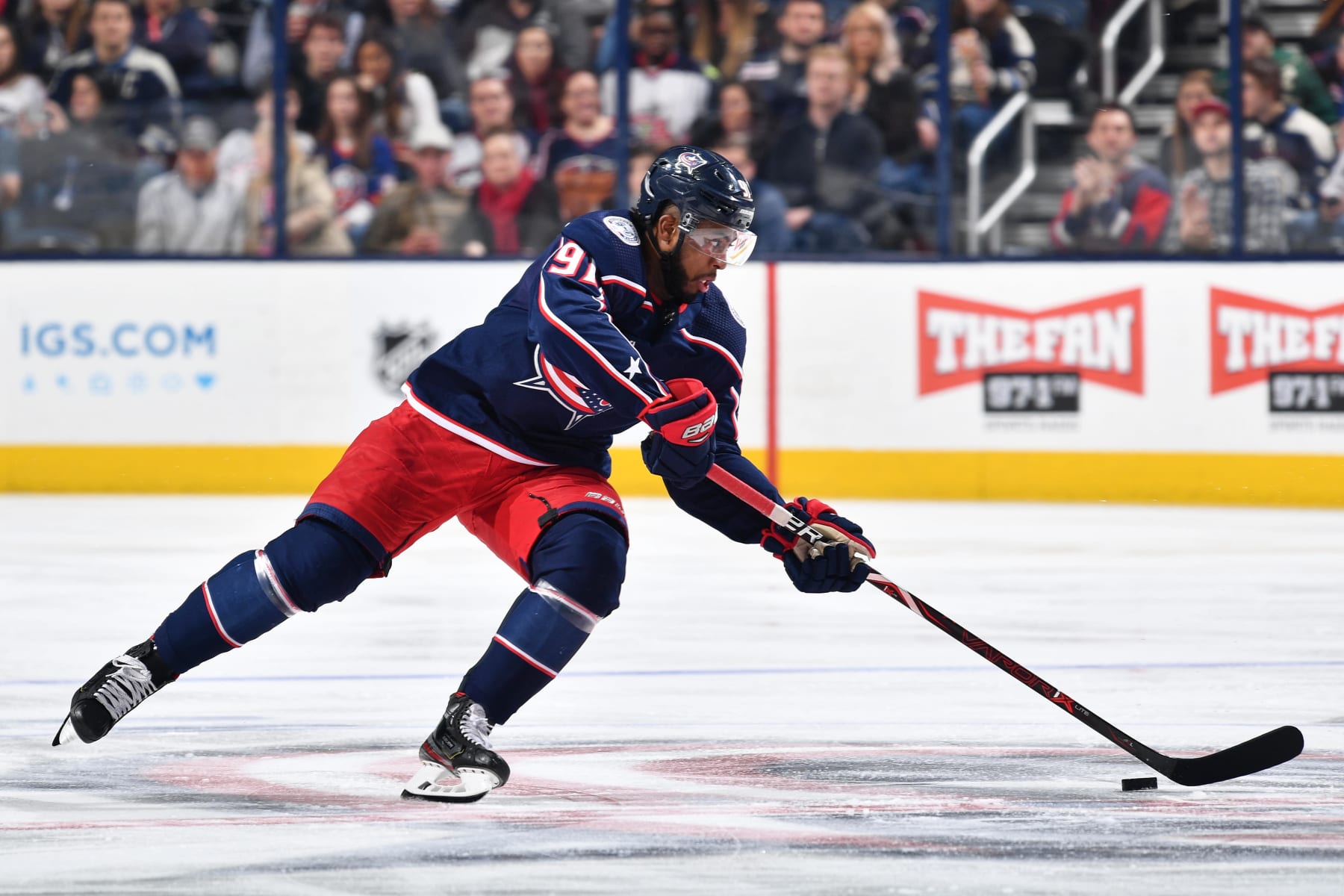
In the future, the sequence of moves this offseason that saw Columbus sign Erik Gudbranson and trade Oliver Bjorkstrand might be the pick here, but for the time being we are going to go with trading away Duclair.
Duclair was dealt away at the 2019 trade deadline when Columbus went all-in by adding Matt Duchene, Ryan Dzingel, Keith Kinkaid and Adam McQuaid.
The deals did accomplish their goal. They got the Blue Jackets into the playoffs and helped them pull off one of the biggest upsets in recent postseason history when they swept the 62-win Tampa Bay Lightning to win their first-ever playoff series.
Overall, the approach was bold and the type of thing more general managers should try to pursue when they have a chance to compete. And they didn't really give up a ton of assets in hindsight.
But including Duclair in the trade for Dzingel seems like a big miss, especially given the way he exited Columbus. Duclair was a focal point for criticism from former head coach John Tortorella, with Tortorella questioning if he even knew how to play hockey. It was harsh and seemed personal.
All Duclair has done since then is score 72 goals in 204 games with the Senators and Panthers. That is a 28-goal pace per 82 games, all for a pretty cheap price against the salary cap.
Dallas Stars: Buying out Valeri Nichushkin
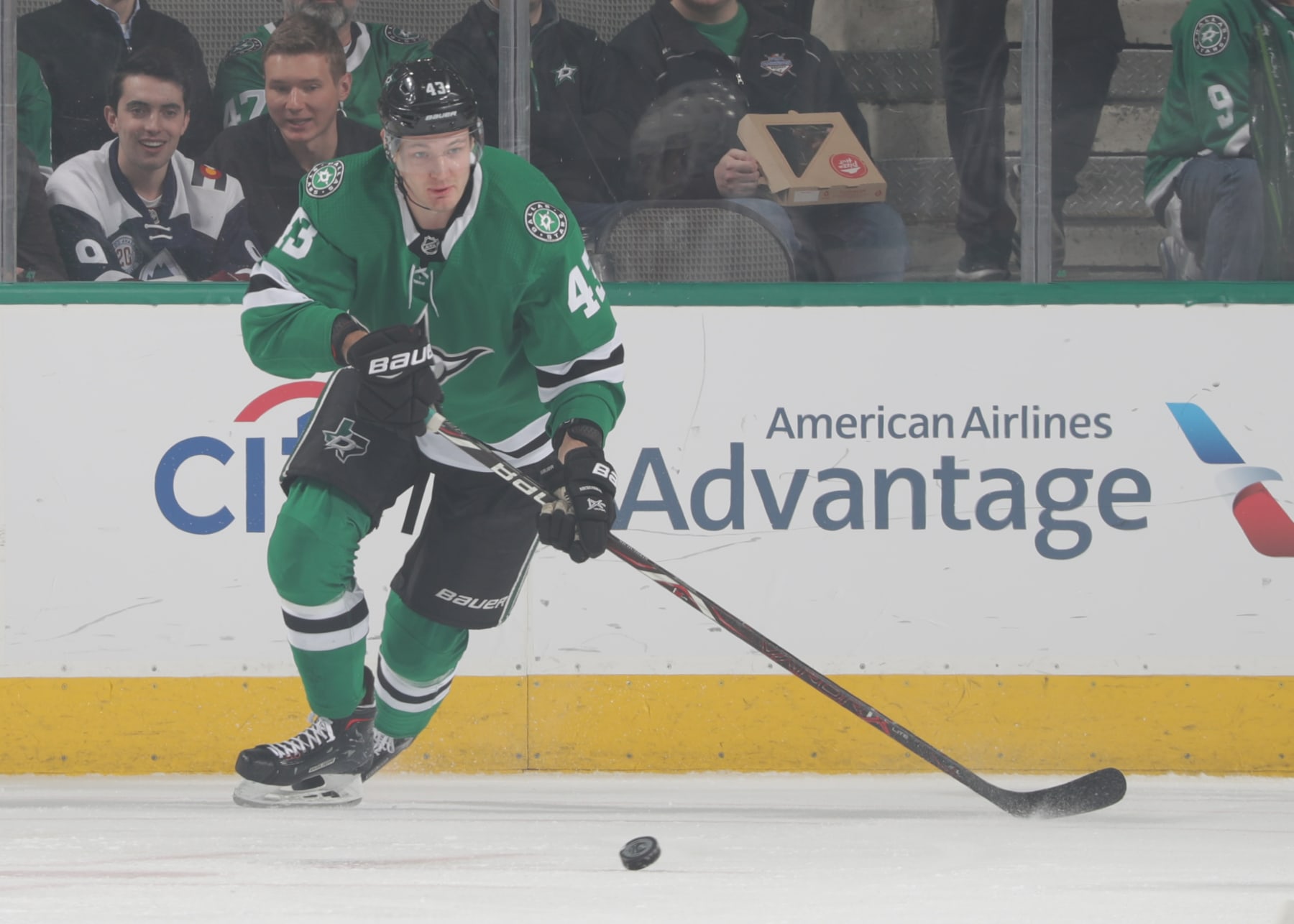
During the 2018-19 season Valeri Nichushkin played 59 games for the Dallas Stars. Despite having strong underlying numbers and a positive defensive impact, he scored zero goals, had just seven assists and recorded zero penalty minutes.
It was one of the most bizarre stat lines in the history of the league, simply because nothing ever seemed to happen when he was on the ice.
He still had one year remaining on his contract worth $2.95 million.
Instead of hoping for a rebound season, the Stars decided to buy out the 23-year-old forward, losing him for nothing.
It has turned out to be a disaster of a decision.
Nichushkin ended up signing a one-year deal in Colorado, and over the ensuing three years turned himself into one of the league's best two-way wingers and was one of the Avalanche's most impactful players on the 2022 postseason run to the Stanley Cup.
He turned all of that into an eight-year, $49 million contract extension this offseason.
The Stars had no idea what they had and no idea what to do with it.
Detroit Red Wings: The Filip Zadina Pick
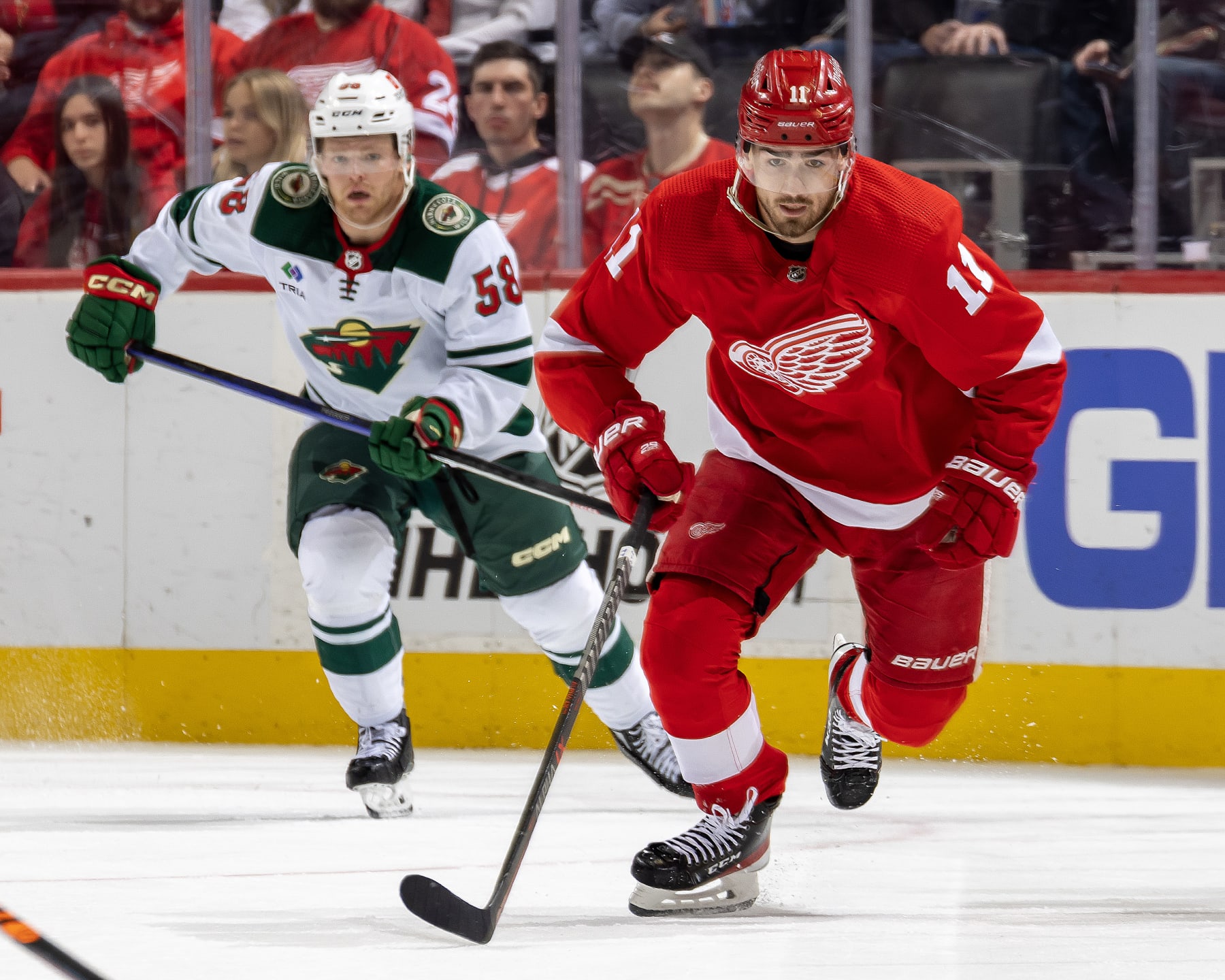
Crushing teams for draft picks that go wrong can be a dangerous game, but the Red Wings also have not had many obvious bad moves over the past few years.
The Ben Chiarot contract this offseason will probably turn out to be a mistake, but that deal is so fresh it is hard to include it.
The Zadina pick, though, is one that stands out as something that has not worked out.
He was the No. 6 overall pick in the 2018 draft and was expected to be a major cornerstone in their rebuild. But he has just 25 goals in 166 games so far in his career.
What makes it sting even more: Quinn Hughes was the very next player taken in the draft.
Top-10 picks need to hit for rebuilding clubs. This looks like a miss, and Zadina is running out of time to become a star.
Edmonton Oilers: Re-signing Tyson Barrie
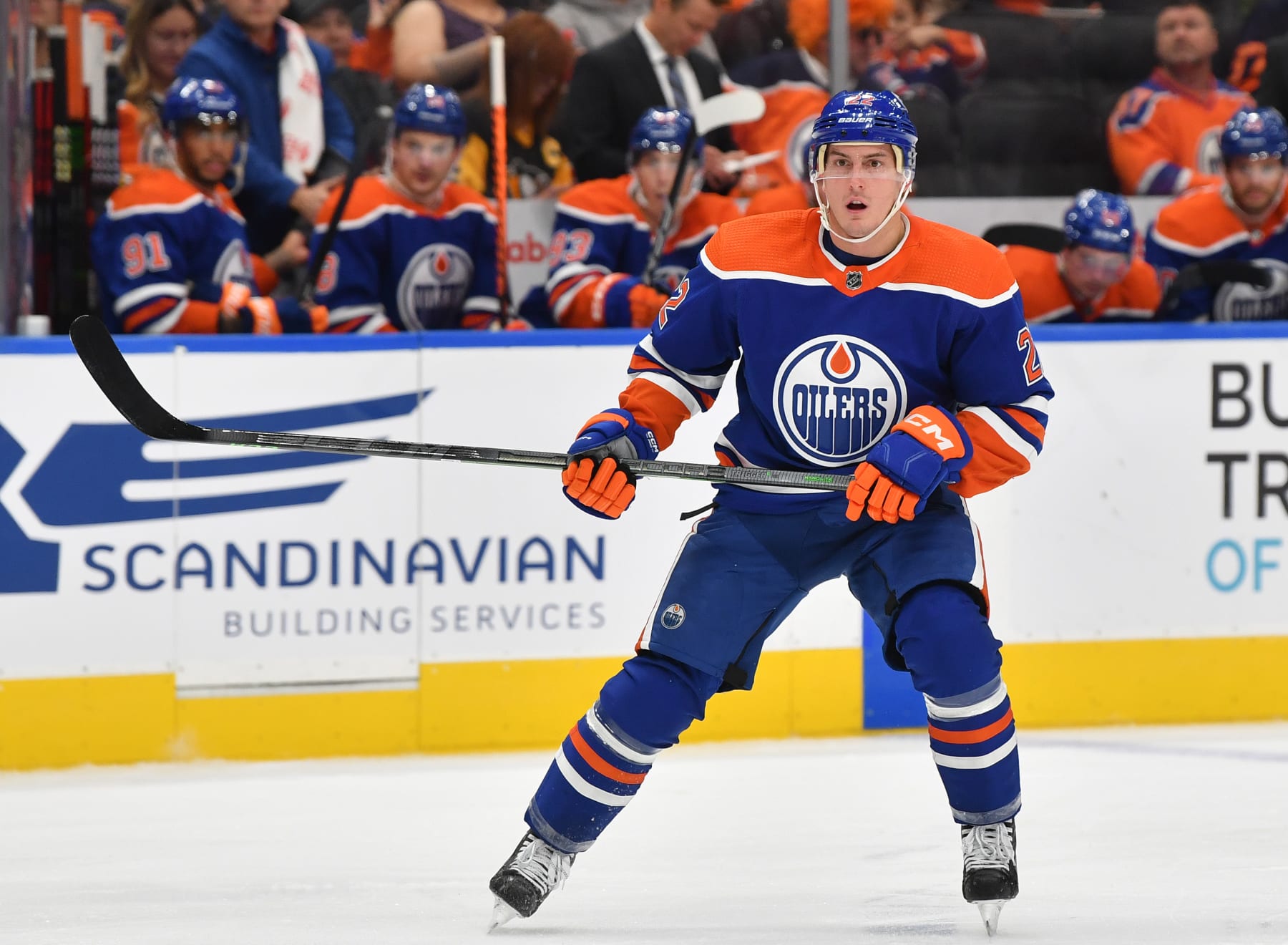
The Oilers made a smart move to sign Barrie to a one-year deal prior to the 2020-21 season as he was looking to rebuild his value and potentially cash in the next offseason in free agency.
All of that worked out for everybody.
Barrie got a chance to play on a loaded power-play unit, pumped up his point totals and gave the Oilers solid value out of a low-risk free-agent signing.
It could have just ended there.
But the Oilers decided to re-sign him to a multiyear contract worth more than $4.5 million per season. The mistake here was buying on a player at his highest possible value and not realizing the circumstances that resulted in his production. This has been a constant problem for the Oilers in recent years, regardless of who the general manager or head coach is.
Given how cap-strapped the Oilers are and how thin they are on defense, this was a luxury signing that they probably could have done without, especially given Barrie's flaws defensively.
Florida Panthers: Sergei Bobrovsky Contract
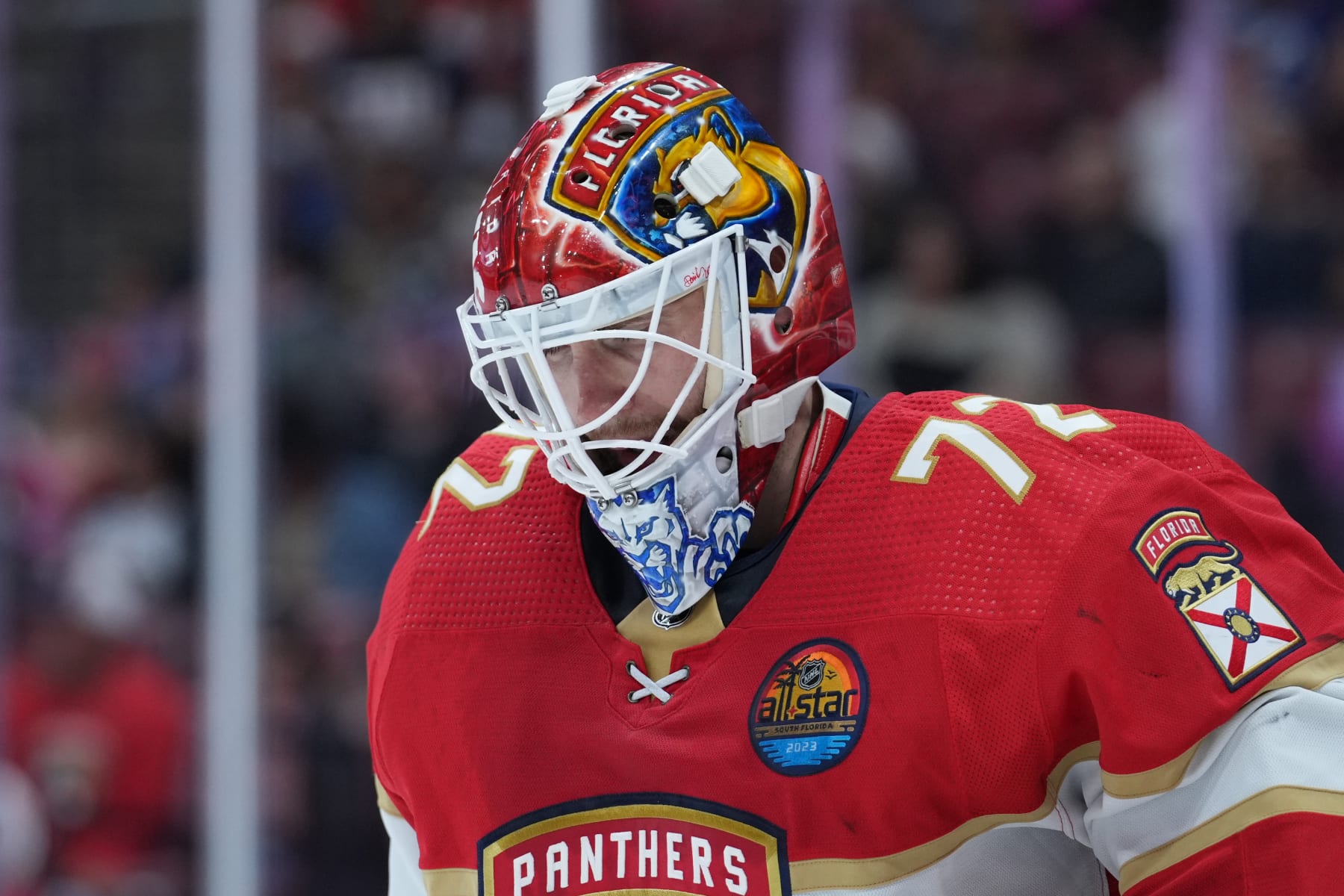
Signing Sergei Bobrovsky seemed like a perfect fit for the Florida Panthers in a lot of ways.
They desperately needed a goalie to fix what was a huge weakness, and Bobrovsky was the best option that offseason. He was already a two-time Vezina Trophy winner and had helped carry some average Blue Jackets teams to the playoffs.
But there were some concerns over some bad postseason showings, and he was coming off his worst full season as a starter.
None of that dissuaded the Panthers from signing him to a seven-year, $70 million contract in free agency prior to the 2020-21 season.
Big free-agent signings always carry some risk, and that is especially true with goalies. There is a big boom-or-bust element to them. After three years, this is leaning more toward the bust side of that spectrum.
Since joining the Panthers, his .906 save percentage is only 19th out of 25 goalies with at least 100 games played during that stretch, and his playoff performances have not been very good. A $10 million cap hit for another four years for a 34-year-old goalie who has performed at a below-average level is definitely scary.
Los Angeles Kings: Tyler Toffoli Trade
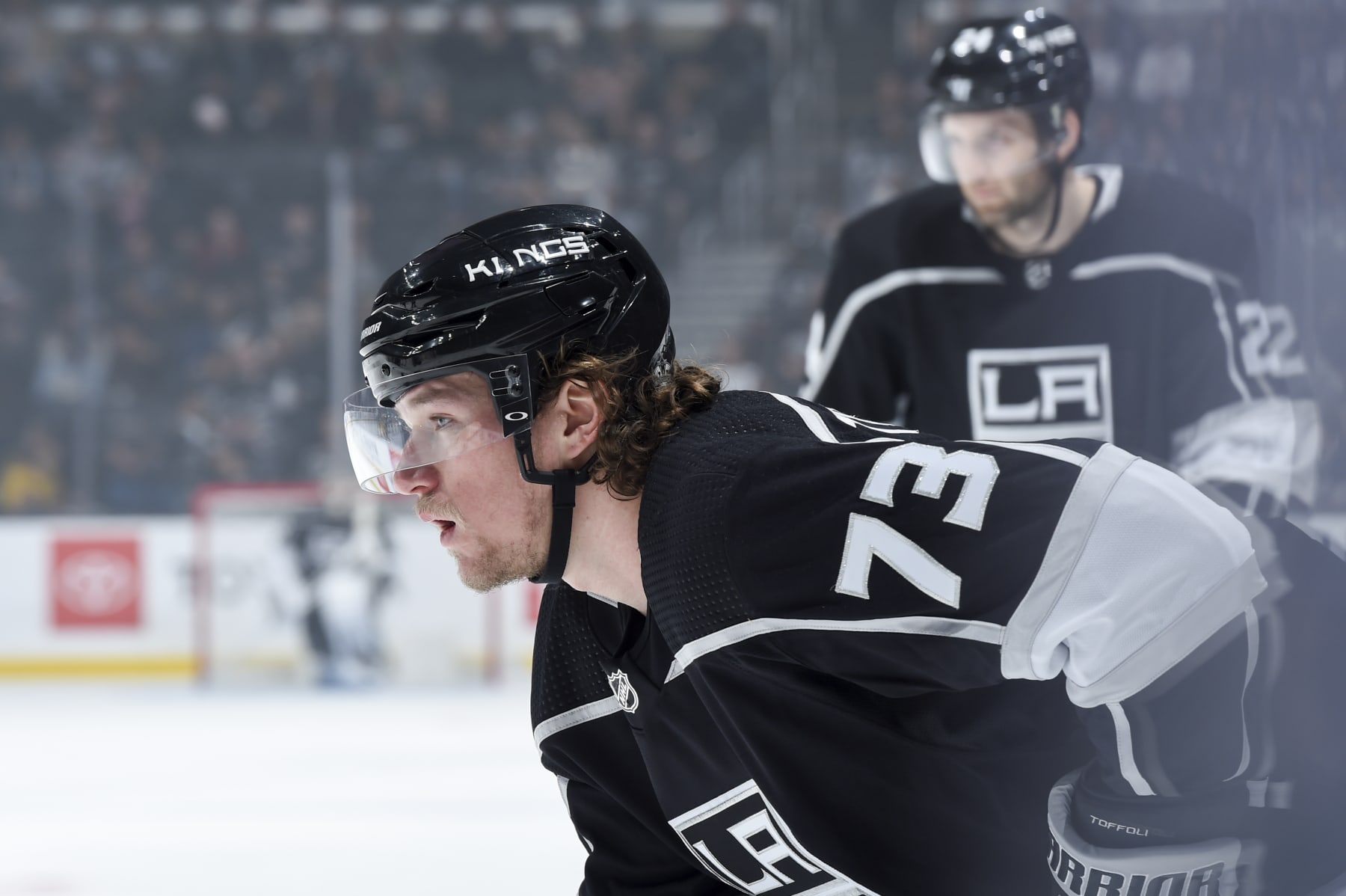
The Kings' decision to trade Toffoli at the 2020 trade deadline made a ton of sense in practice.
He was a pending unrestricted free agent, and the Kings were not yet ready to compete. So they dealt him to the Vancouver Canucks for two draft picks (a second and a fourth), Tyler Madden and Tim Schaller.
It's the type of return you expect for a second-tier rental at the deadline. Some lottery ticket picks and a couple of AHL roster-fillers.
In hindsight, though, maybe the Kings should have made more of an effort to keep Toffoli. It turns out that they were not that far away from contention, and they have spent the past couple of years making some significant veteran additions to their roster. Toffoli would have been a great fit with that core given his two-way play.
This is one of those moves that is only slightly haunting because they really have not made many bad moves over the past five years. The rebuild has been smooth, and their recent NHL roster additions have been very strong. The only somewhat questionable move might be the contract for goalie Cal Petersen, but even that is not a major mistake.
Minnesota Wild: Buying Out Zach Parise and Ryan Suter
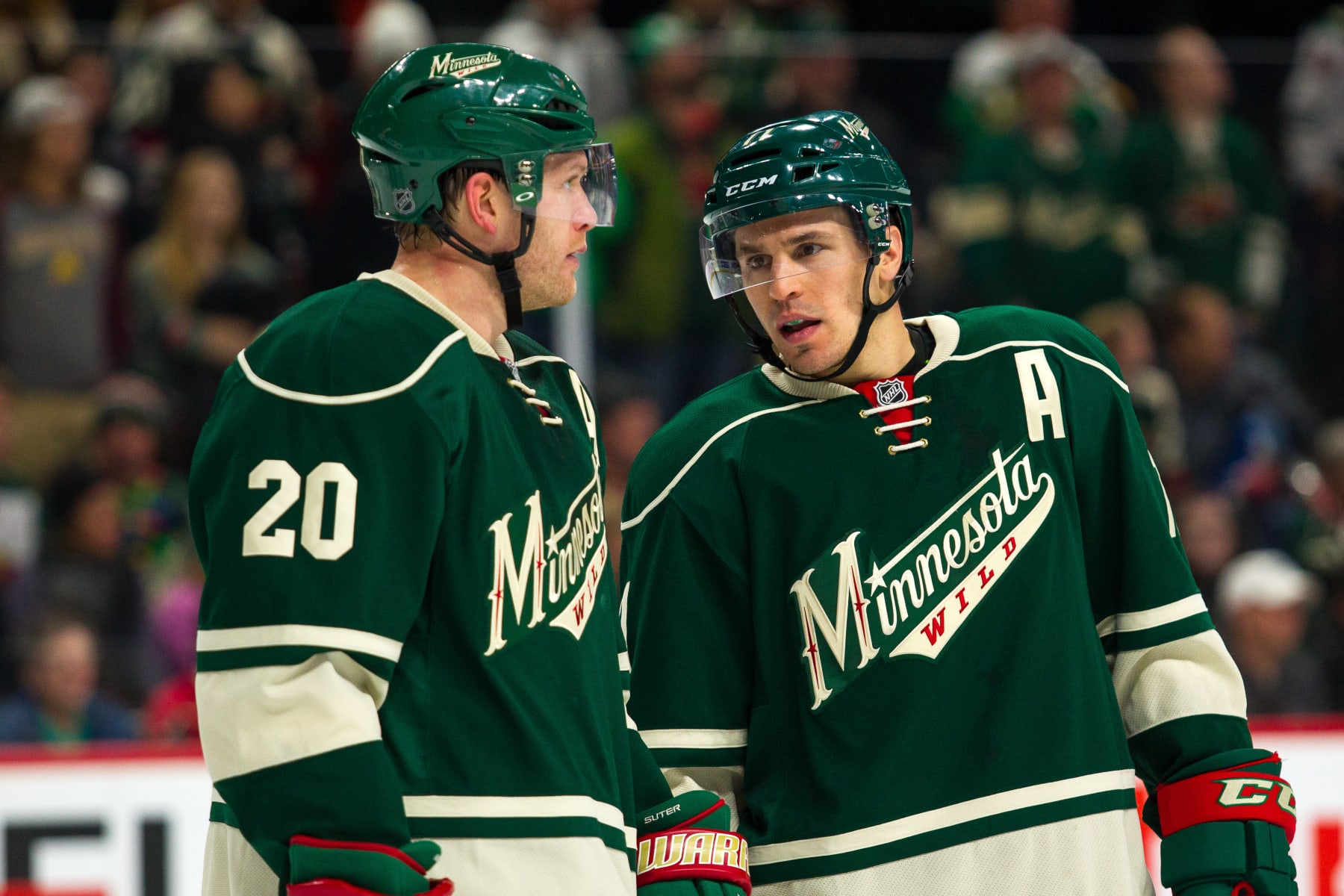
This not meant to be a criticism of the decision to buy out Parise and Suter because it probably had to be done.
Those contracts were going to be an albatross on the Wild's salary cap through the end of the 2024-25 season anyway. They were going to count a combined $15 million against the cap and not give the Wild anything close to that level of production. Trading them likely wasn't an option and would still going have resulted in them either retaining salary, taking on another team's bad contracts, or both.
So they bought them out and took the dead cap hit penalty for the next few years. Those buyouts, though, are not cheap.
They will result in the Wild having over $12 million in dead cap space this year, and $14.6 million in each of the two years after that.
On one hand, that is roughly the same amount of money the Wild would have committed to that duo over those years had they not bought them out. So that cap space was going to be taken up anyway by declining production. The question for the Wild is whether or not the players replacing them will be able to outproduce what Suter and Parise would have done.
Either way, that salary cap crunch is the primary reason they had to trade Kevin Fiala, one of their best players, to the Los Angeles Kings this offseason.
Montreal Canadiens: Losing Phillip Danault
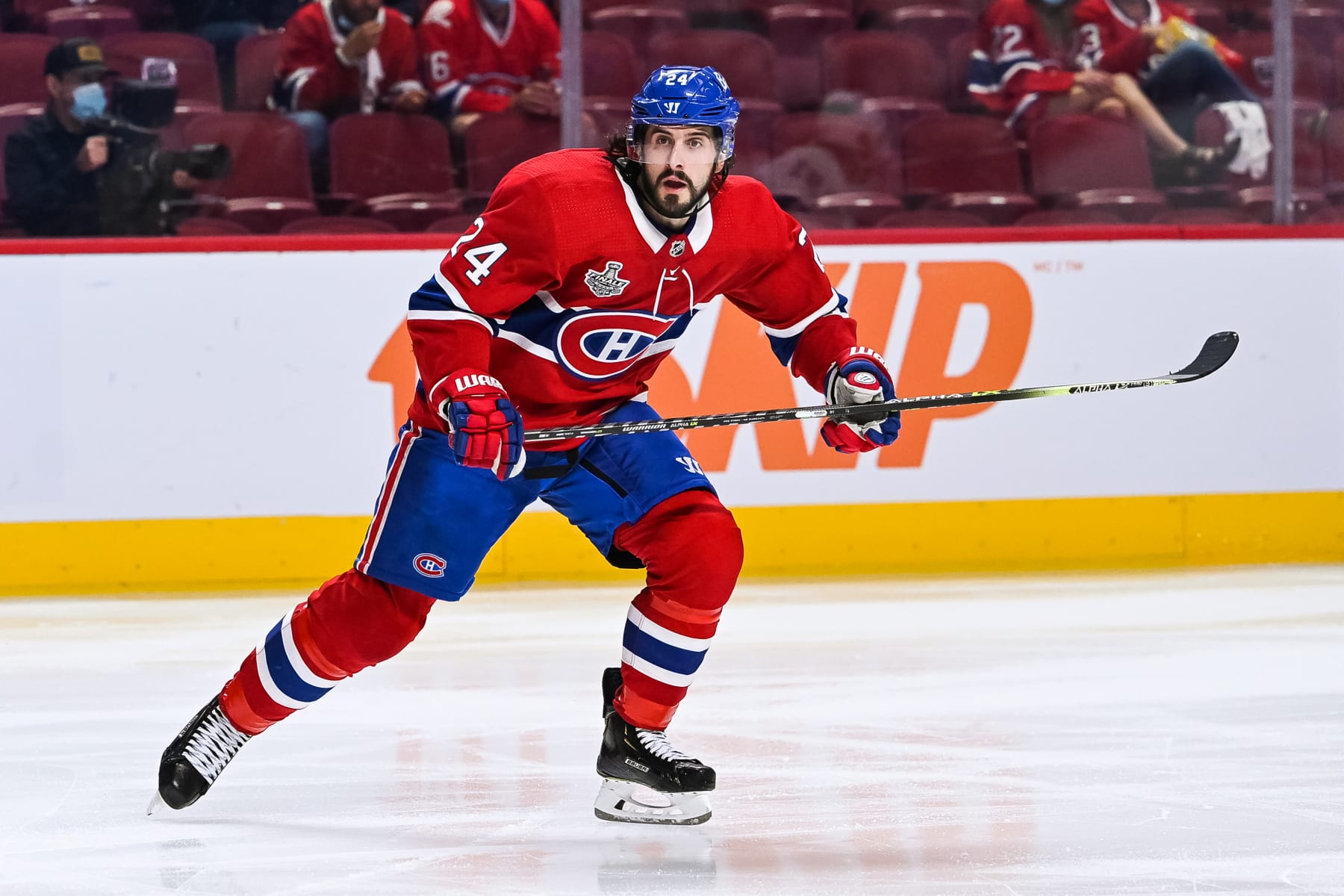
The Canadiens went on a stunning run to the 2021 Stanley Cup Final and then watched as a significant portion of that team got gutted the following offseason.
Carey Price and Shea Weber were lost to injury and personal reasons.
Jesperi Kotkaniemi was signed to an offer sheet by Carolina, and they lost Corey Perry, Tyler Toffoli and Phillip Danault in unrestricted free agency.
Danault is the one loss that really hurt because he was such an outstanding two-way player, and he has really found his offensive game after signing in Los Angeles.
He is one of the league's best defensive forwards and was consistently near the top of the Selke Trophy voting during his time in Montreal. He continued that defensive brilliance during his first year in Los Angeles but also scored a career-high 27 goals to go with it.
Keeping him would have been a struggle against the salary cap, but the Canadiens could really use that of presence down the middle of their lineup right now.
Nashville Predators: Kyle Turris Buyout
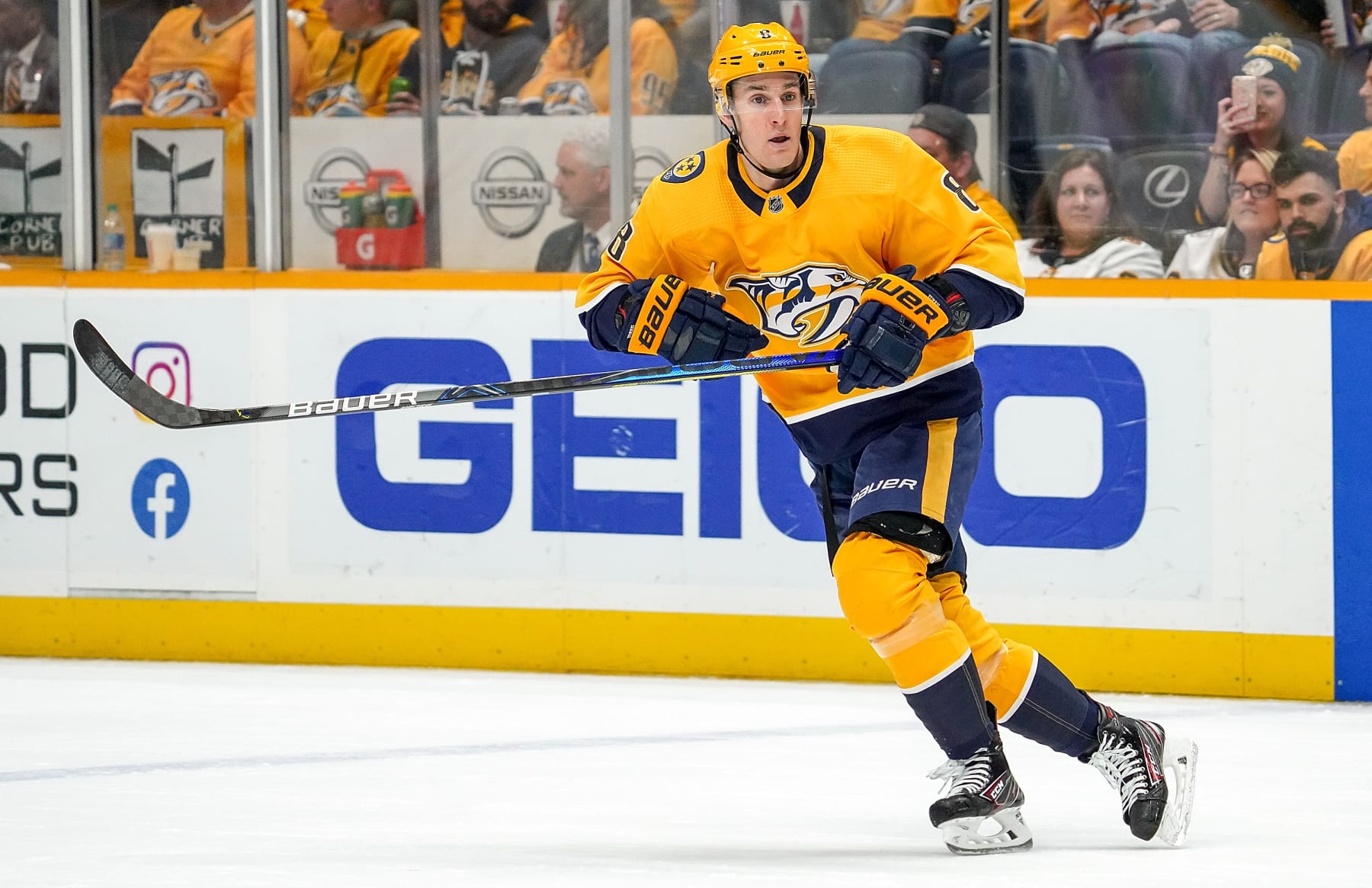
Predators general manager David Poile is not afraid to make big, bold trades to build his roster.
Sometimes they work. Sometimes they do not.
The three-team Kyle Turris trade most definitely did not work as planned for Nashville. Not only did it cost them a terrific defenseman in Sam Girard (now a key part of the league's best defense in Colorado), but they also re-signed Turris to a long-term contract that needed to be bought out just two years after it was signed.
That buyout going to cost the Predators $2 million in dead cap space every year through the end of the 2028 season. It might not seem like a huge deal, but that extra $2 million could be significant in roster-building. Turris scored just 29 goals in 182 games with the Predators, and now they still have another five years of his contract coming back to haunt them.
New Jersey Devils: P.K. Subban Trade
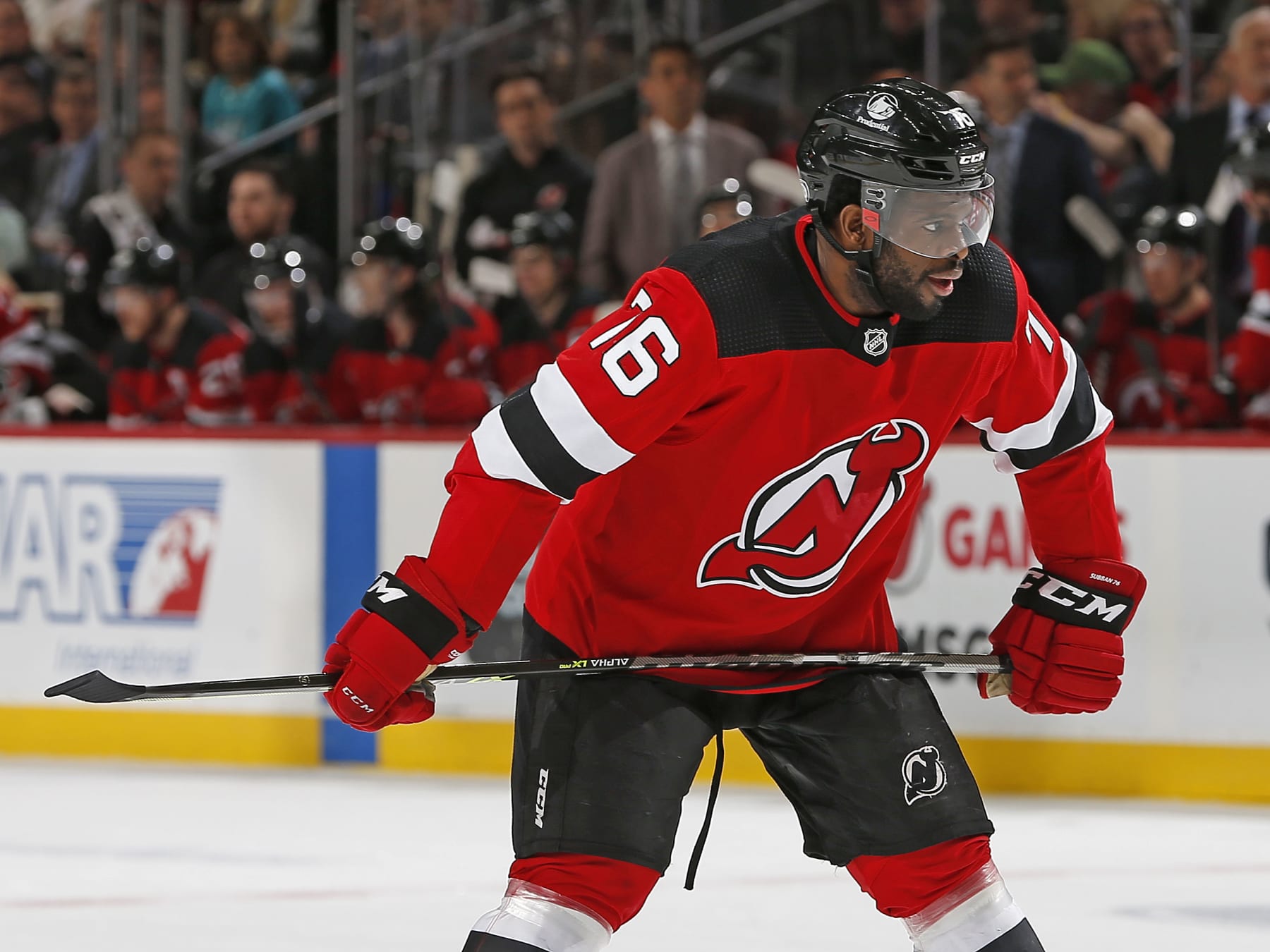
Say this for the Devils: Even though success has not followed them around over the past decade, they have really made efforts to get better.
One of those efforts came during the 2019 offseason, when they acquired P.K. Subban from the Nashville Predators in exchange for Steven Santini, Jeremy Davies and two second-round picks.
At the time, Subban was still a big star in the NHL, but he was showing signs of slowing down and the Predators were desperate to dump the remaining years of his contract that still carried a $9 million yearly salary-cap hit.
The Devils were swimming in cap space and were willing to take on all of Subban's deal.
Unfortunately it quickly became apparent that Subban was no longer the superstar player he was during his peak in Montreal and Nashville, and he never made the steady impact the Devils wanted.
The problem was not what New Jersey gave up but the fact that Subban's deal ate up a huge chunk of the Devils' salary cap.
They could have done a lot more with that $9 million over those three years and advanced their rebuild in a more meaningful way.
New York Islanders: Devon Toews Trade
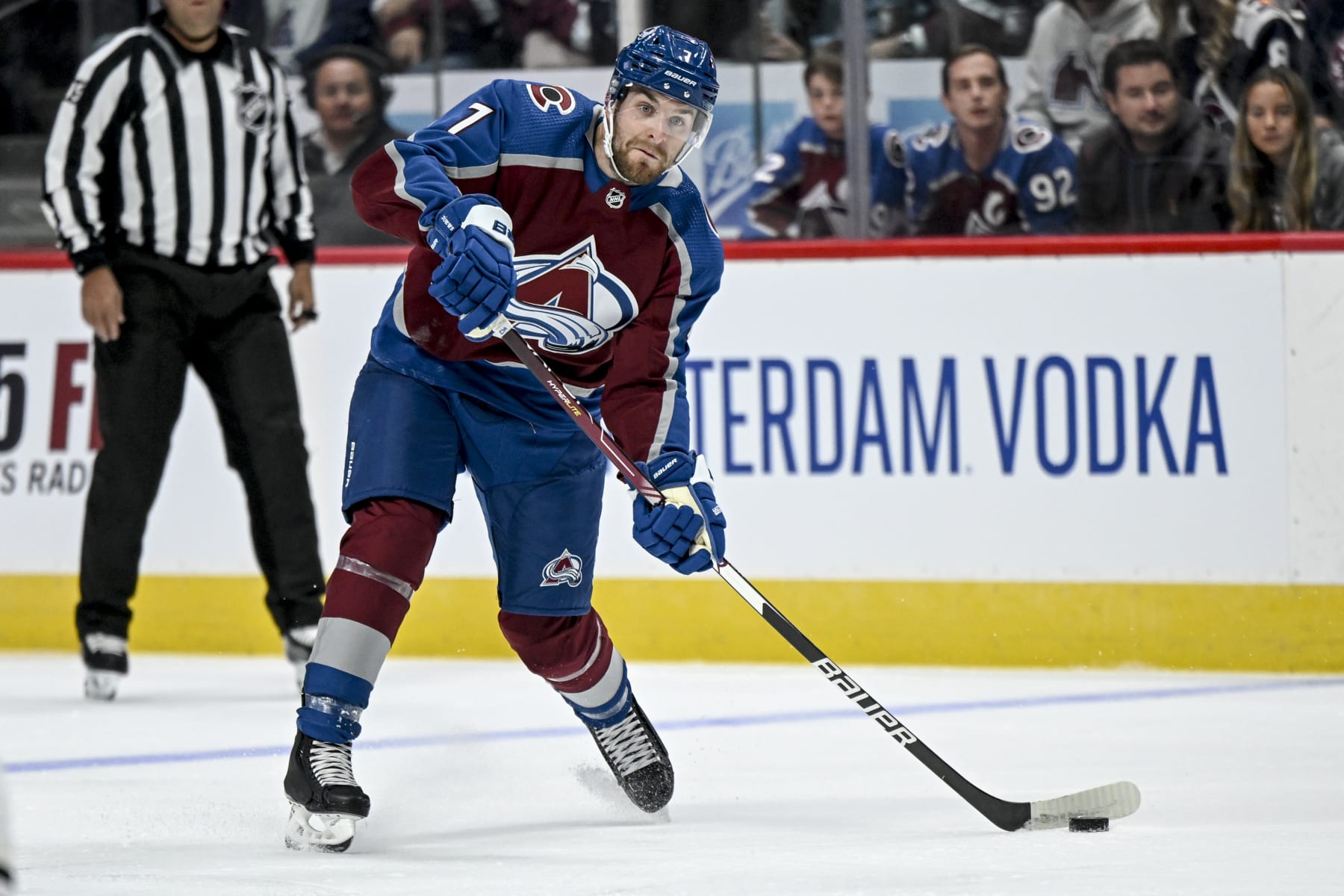
This is the type of move that everybody knew was going to be a nightmare the second it was completed.
Before the 2020-21 season, the Islanders, facing a salary-cap mess of their own creation, traded Toews, a restricted free agent at the time, to the Colorado Avalanche for two second-round draft picks. Colorado immediately re-signed Toews to a reasonable four-year, $16 million deal and then watched him blossom into one of the league's best overall defenders.
In his first two full seasons with the Avalanche, he has finished 11th and eighth in Norris Trophy voting and was a key member of their 2022 Stanley Cup winning team.
Toews never seemed to get a chance to reach his full potential with the Islanders, and the whole thing is just looking like a giant organizational miss. With all due respect to Adam Pelech and Ryan Pulock, Toews would be the Islanders' best overall defenseman right now and they would be a much better team with him.
New York Rangers: Pavel Buchnevich Trade
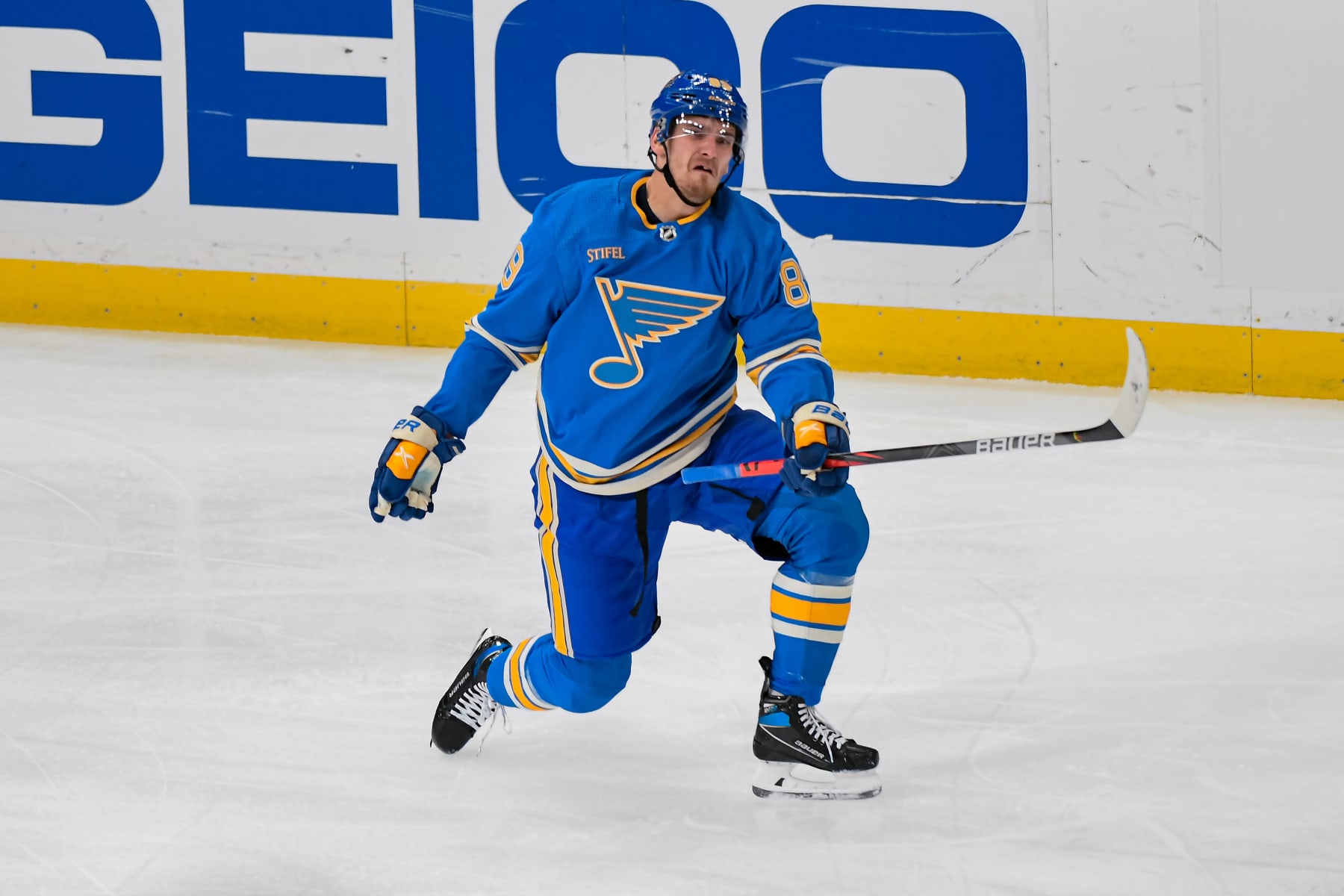
It is difficult to be too critical of the Rangers because they have built a team that looks like it is going to be a Stanley Cup contender for the foreseeable future. But this is a prime example of how even really good teams can sometimes swing and miss.
The Rangers' quest to get tougher following the 2020-21 season saw them deal Bucnhevich to the St. Louis Blues for Samuel Blais and a second-round draft pick.
By pretty much any objective measure, it was a rough deal for the Rangers.
Buchnevich ended up notching 30 goals for the Blues in his debut season with the team, while the Rangers spent most of the season in desperate need of additional scoring depth and had to make a handful of deals at the trade deadline to bolster their offense.
Ultimately things worked out as the Rangers went on a run to the Eastern Conference Final and still have a very strong team this season.
That does not change the fact that the Buchnevich trade did not provide good value.
Ottawa Senators: Mark Stone Trade
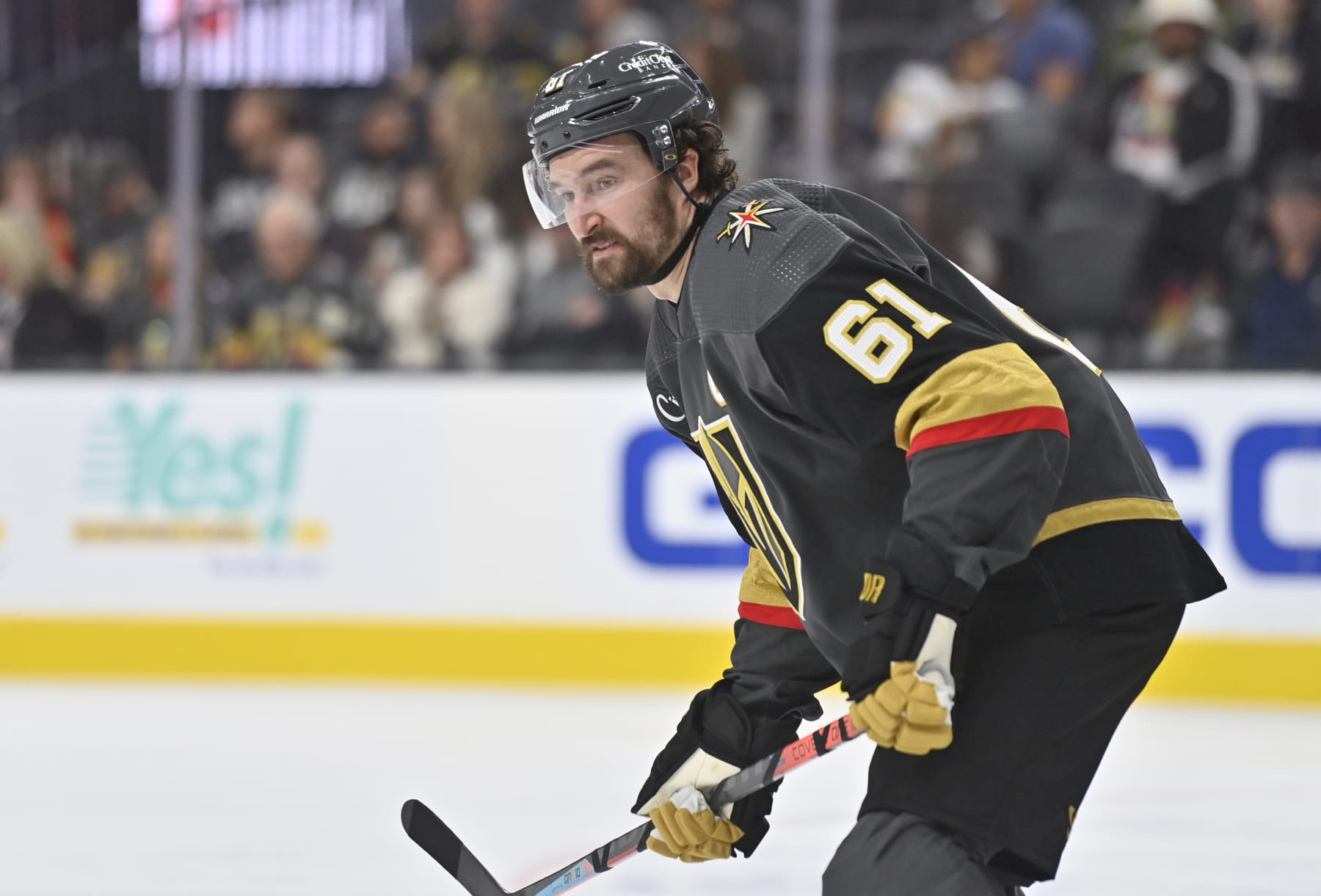
There was a two-year stretch where the Senators completely gutted a roster that was a double-overtime Game 7 loss away from reaching the Stanley Cup Final.
One of the most significant trades during that stretch was the 2019 deal that sent Mark Stone to the Vegas Golden Knights for Oscar Lindberg, Erik Brännström and a second-round draft pick.
The Senators were starting a massive rebuild, and they were unlikely to re-sign Stone to the long-term deal he ended up getting with the Golden Knights. But it still turned out to be a massively disappointing return for one of the league's best two-way players.
Brännström was the key to the deal, and he received a ton of hype from general manager Pierre Dorion, but he has not really developed into anything more than an underwhelming bottom-of-the lineup defender.
When you are trading a player as good as Stone, you hope to get at least something back to show for it. Given that Brännström is already 23 years old and is now more of a suspect than a prospect, it seems like a big missed opportunity.
Philadelphia Flyers: Ryan Ellis Trade
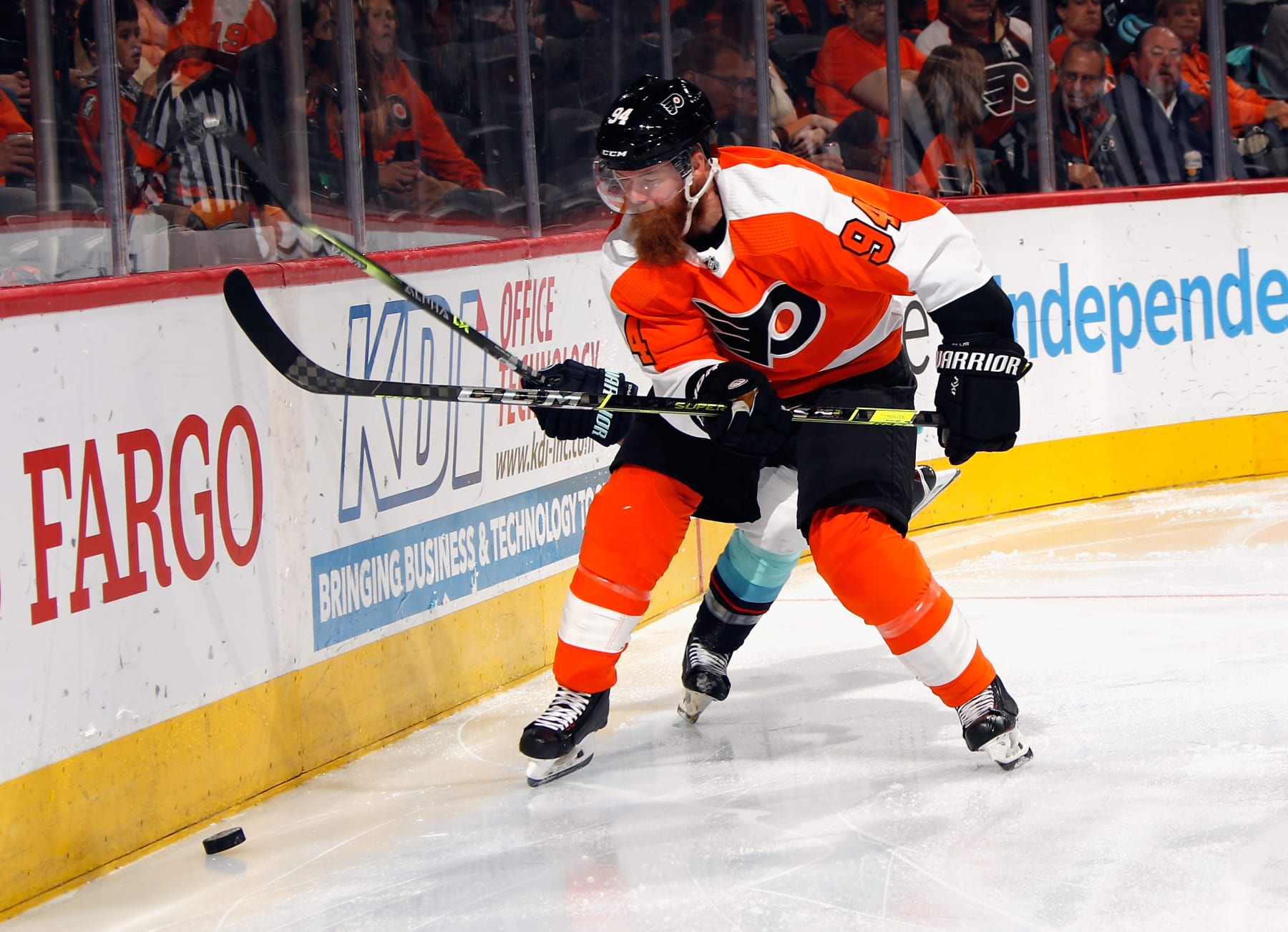
This is perhaps a little controversial because it was not necessarily a bad move. It has just been terribly unlucky.
Prior to the 2021-22 season, the Flyers completely reshaped their defense dumping Shayne Gostisbehere and acquiring Rasmus Ristolainen and Ryan Ellis in separate trades.
The trade for Ristolainen and eventual long-term contract extension will get the most criticism here because they were head-scratching moves; not only in terms of what it cost (a first-round pick) in assets but also because it is a huge contract for a player who is not really all that good defensively—or productive.
So why isn't that the trade that is haunting the Flyers?
Because everything about the Ellis trade has just been horribly disappointing. When healthy, he has been an outstanding player and should have been the new focal point of the Flyers' defense. But he has been limited to just four games because of injury. Nobody knows when he will return, and there will be questions about what he is capable of when he does actually play.
He is signed for another four years after this season at $6.25 million per season.
There is also the fact they traded former No. 2 overall pick Nolan Patrick in the deal to acquire him. So overall it seems a missed opportunity. Patrick did not pan out because of injury, and Flyers fans will always remember they selected Patrick ahead of Miro Heiskanen and Cale Makar and then traded him for a defender who should have reshaped the defense but has been unable to play.
It's just bad luck all around.
Pittsburgh Penguins: Kasperi Kapanen
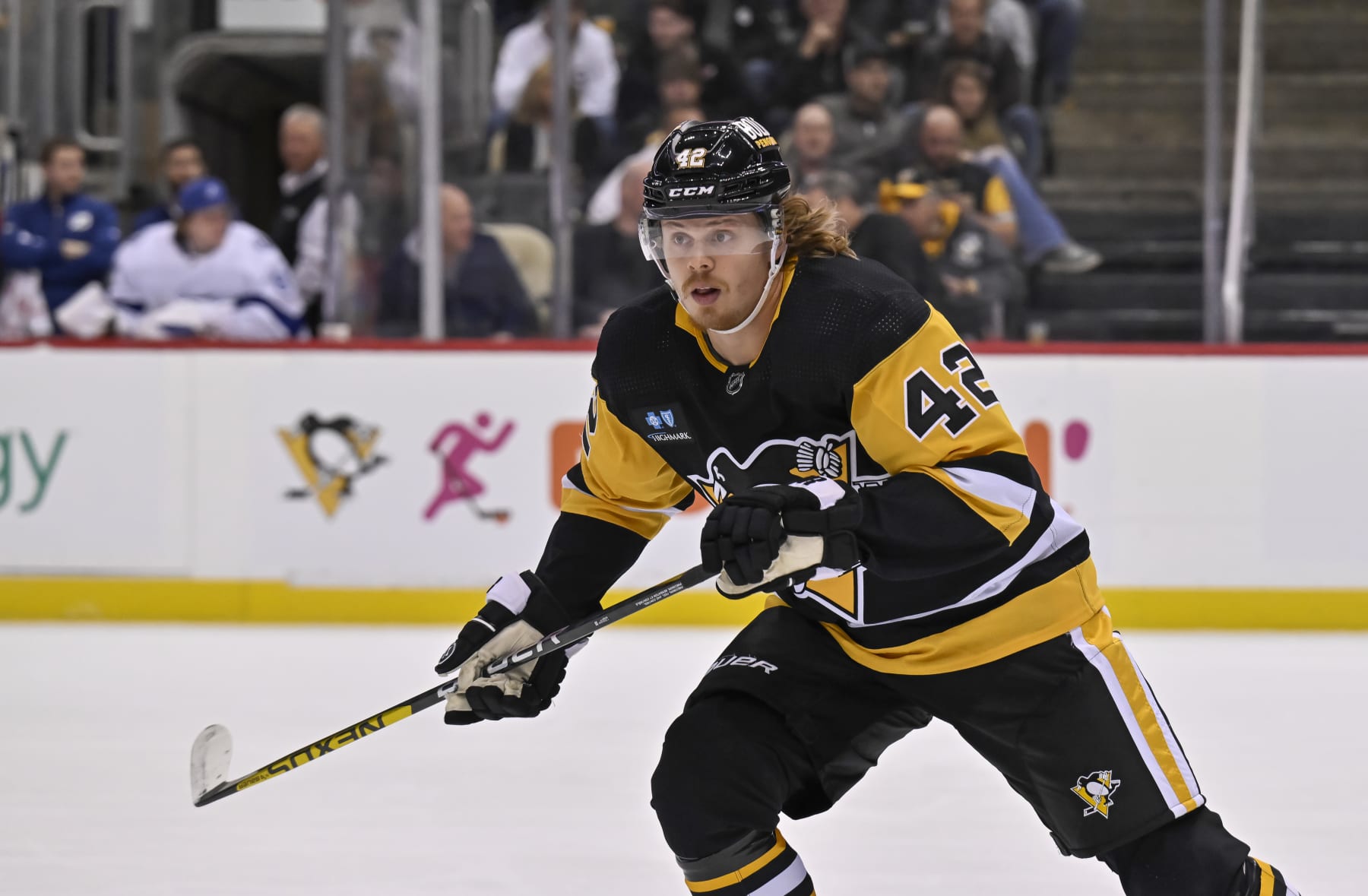
There are a lot of layers here, and maybe this is cheating a little bit, but this one is not necessarily about any individual move, rather the collective assets the Penguins have invested over the years.
Kapanen was originally drafted by the Penguins in 2014's first round, then he was traded to Toronto as part of the Phil Kessel trade a year later. It was a huge success.
But starting with the 2020-21 season, the Penguins went all in on trying to get him back and making him a key player for the team.
On August 25, 2020, the Penguins traded prospect Filip Hållander and a first-round pick to Toronto to acquire Kapanen. In his first two years with the team, Kapanen has been wildly inconsistent, and despite his struggles, the Penguins still felt the need to sign him to a two-year extension worth more than $3 million per season. That is a lot to invest in a player who has not been all that productive.
Also consider the fact the Penguins traded Jared McCann to Toronto prior to the Seattle expansion draft to re-acquire Hållander—the player they sent to Toronto for Kapanen.
They would have been better off just keeping Hållander, the first-round pick, and McCann, who is now a 25-goal scorer for Seattle.
San Jose Sharks: Erik Karlsson Trade
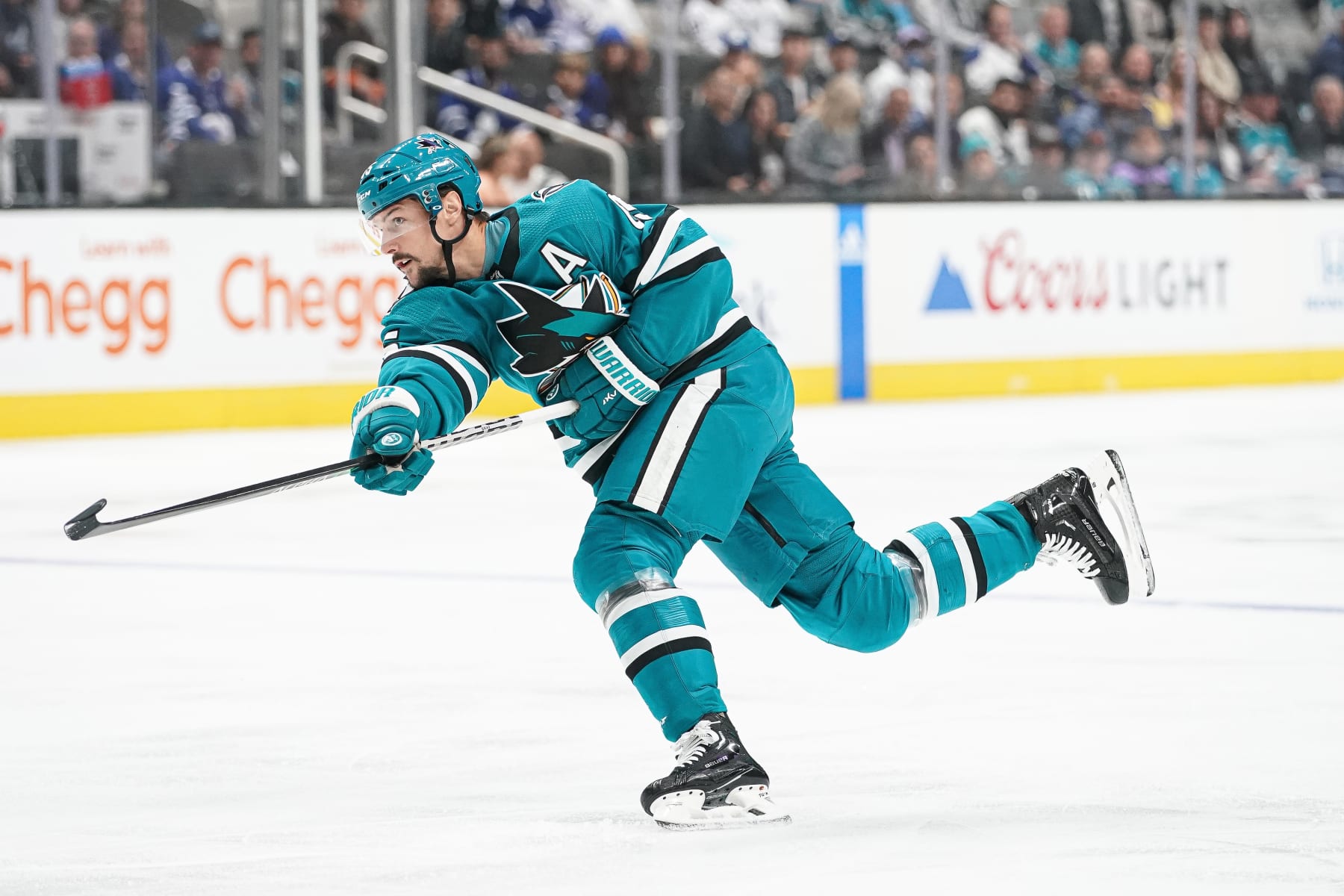
This might be a controversial pick, and it is admittedly made entirely with the benefit of hindsight.
Peak Erik Karlsson is one of the NHL's best all-time defenseman. That is not hyperbole or exaggeration. He was an absolute monster during his prime years with the Ottawa Senators and probably got robbed of a couple of Norris Trophies on top of the two he did win.
When the Sharks acquired him prior to the 2018-19 season, it was supposed to help put them over the top and finally bring a Stanley Cup to northern California.
None of that has happened.
Karlsson has been limited by injuries, the Sharks have made the playoffs just one time since the trade (and do not seem to be close to returning anytime soon), and they ended up giving up a ton of valuable pieces that could have been a big part of their current rebuild. Even worse, Karlsson still counts $11.5 million against the cap for the next five years. Even though he has shown some signs of bouncing back, his age and contract (with a complete no-movement clause) are going to make trading him difficult as the Sharks' rebuild evolves.
Even if they can move him, they are almost certainly not going to get back anything close to the value they gave up to acquire him in the trade with Ottawa.
The two most significant pieces of that trade were Joshua Norris and a first-round pick that turned out to be the No. 3 overall pick in the 2020 NHL draft (Tim Stützle). They are both cornerstones in Ottawa and look like emerging stars.
It is hard to fault the Sharks because these types of trades almost always work out for the team that is getting the superstar. At the time, it looked like an obvious move. But nobody could have foreseen Karlsson's rapid decline, the Sharks' organizational issues and just how well Norris and that draft pick were going to turn out for Ottawa.
This is one of those deals that was a great idea at the time but just did not work out.
Seattle Kraken: Not Taking Vladimir Tarasenko
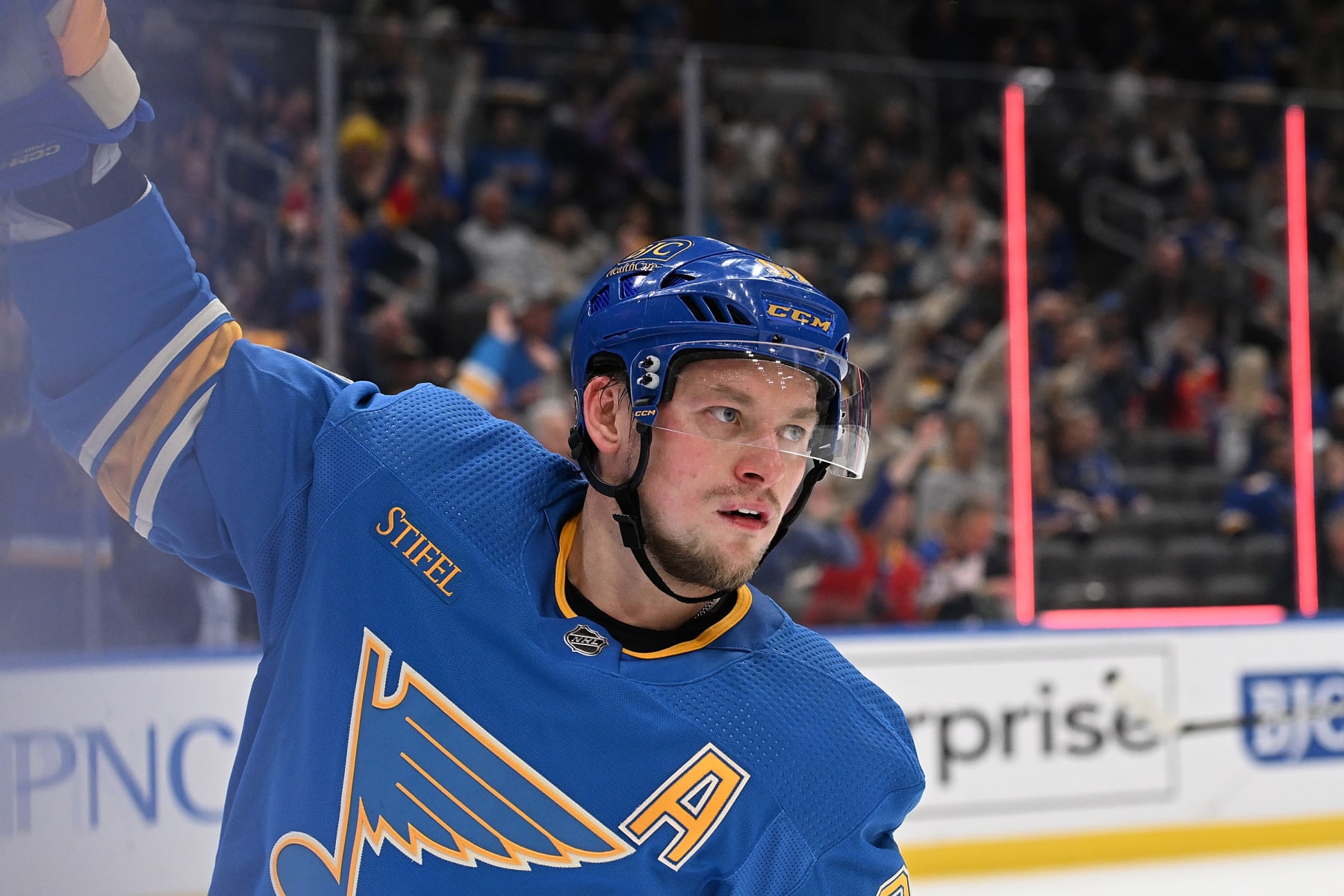
Seattle was not able to replicate Vegas' initial expansion success, and a lot of that is down to some missteps in the expansion draft process.
The most glaring of those missteps was not taking Vladimir Tarasenko when the St. Louis Blues had him sitting right there for the taking.
Tarasenko wanted out of St. Louis, he was coming off of a couple of down years because of injury, and the Blues were unable to find a taker for the remaining two years of his contract. So they exposed him in the expansion draft, and it should have been a great opportunity for the Kraken to land a star to build their initial roster around.
The Kraken did not want to risk the contract and injury situation, so they passed on Tarasenko and took defenseman Vince Dunn instead.
Even though Dunn has been an excellent player and one of their best expansion draft picks, this is still a big miss because Tarasenko is a bonafide star forward and has regained his elite status as a scorer.
Some might argue that Philipp Grubauer's contract is the more problematic move, especially since Seattle still got a good player from the Blues, but you do not get an opportunity to land a player like Tarasenko often. The Kraken had that chance and let it slip away.
St. Louis Blues: Jordan Binnington Contract
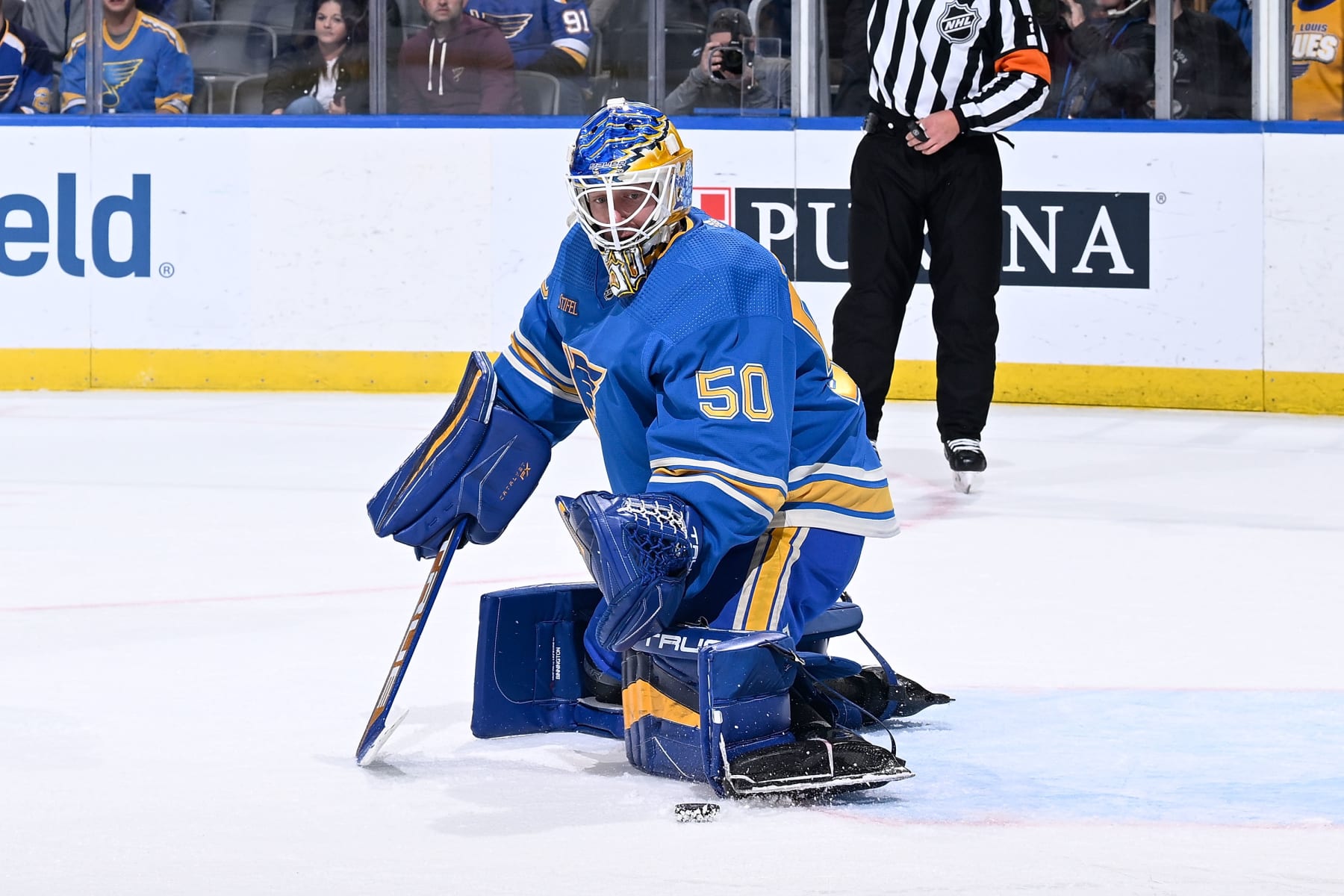
Jordan Binnington will always have a special place in St. Louis Blues history given how he helped save the 2018-19 season and backstopped them to their first-ever Stanley Cup.
But he has not come close to matching that level of play ever since, and his contract ($6 million per year) prevented the Blues from keeping Ville Husso, the superior goalie on the roster a year ago, whose free-agent rights were traded to the Detroit Red Wings.
The Blues gave Binnington a huge contract extension despite plenty of signs that his play was trending in the wrong direction. His contract still has five more years at a $6 million-per-year salary-cap hit with a no-trade clause, and he has not played at a high level since winning that Stanley Cup.
If you are going to invest in a goalie, you better get it right.
There should be some question as to whether the Blues did, and it may have cost them a better goalie.
Tampa Bay Lightning: J.T. Miller Trade
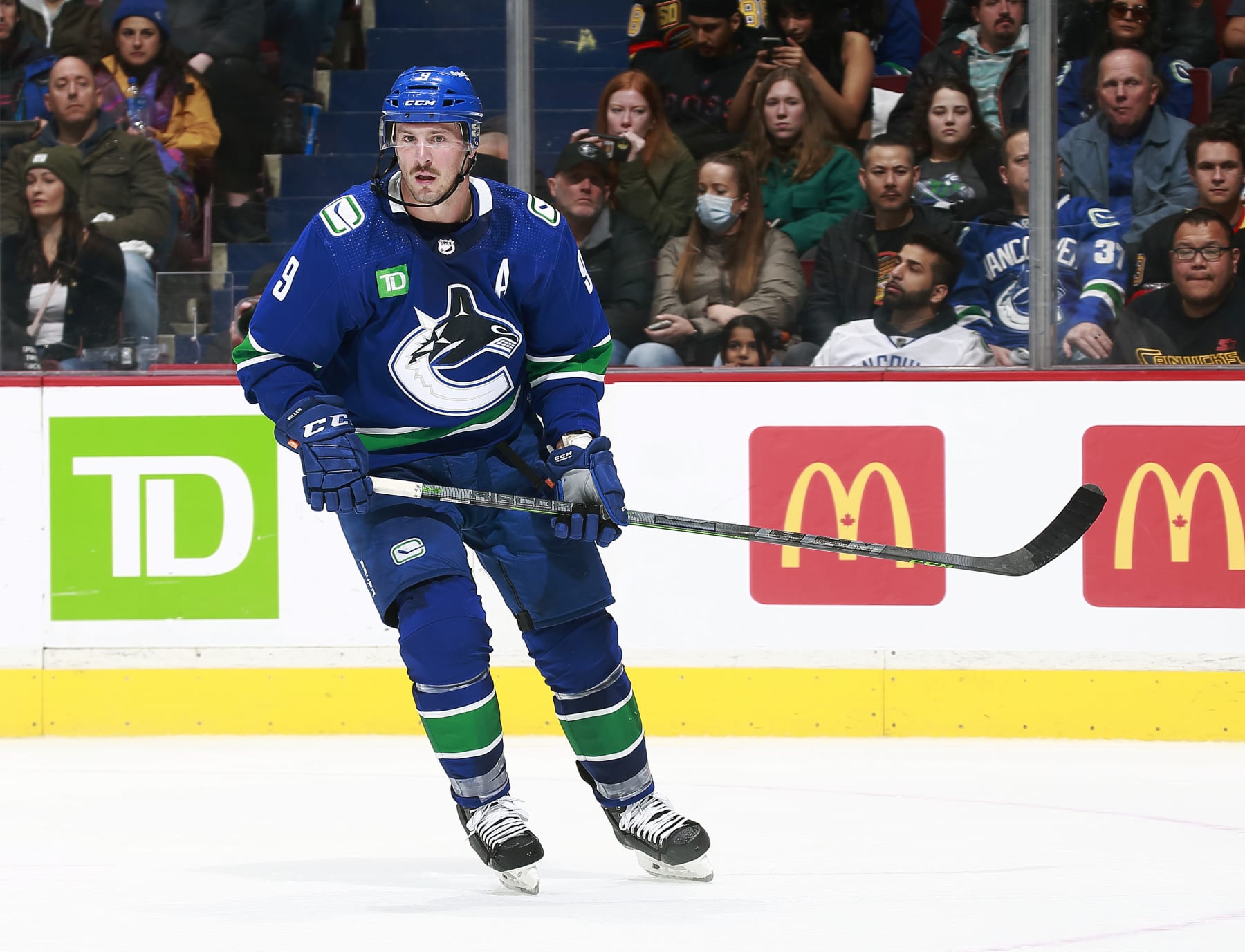
The Lightning are another team that rarely miss in their moves. But sometimes, circumstances beyond your control dictate some tough decisions.
This was one of them.
The Lightning, facing their yearly salary-cap crunch, traded Miller to the Vancouver Canucks for a package centered around a 2020 first-round pick.
Ultimately, Miller was a luxury on an already loaded Tampa Bay roster, but it still turned out to be a lopsided trade in Vancouver's favor. Miller has been a point-per-game player with the Canucks and one of their best overall players.
In Tampa Bay's defense, it used the first-round pick acquired from Vancouver in the trade to get Blake Coleman, who would go on to help the team win back-to-back Stanley Cups in 2020 and 2021. So it still had a way of working out. The fact this is the haunting move for Tampa Bay is a testament to how good the Lightning's front office has been.
Toronto Maple Leafs: Nazem Kadri Trade
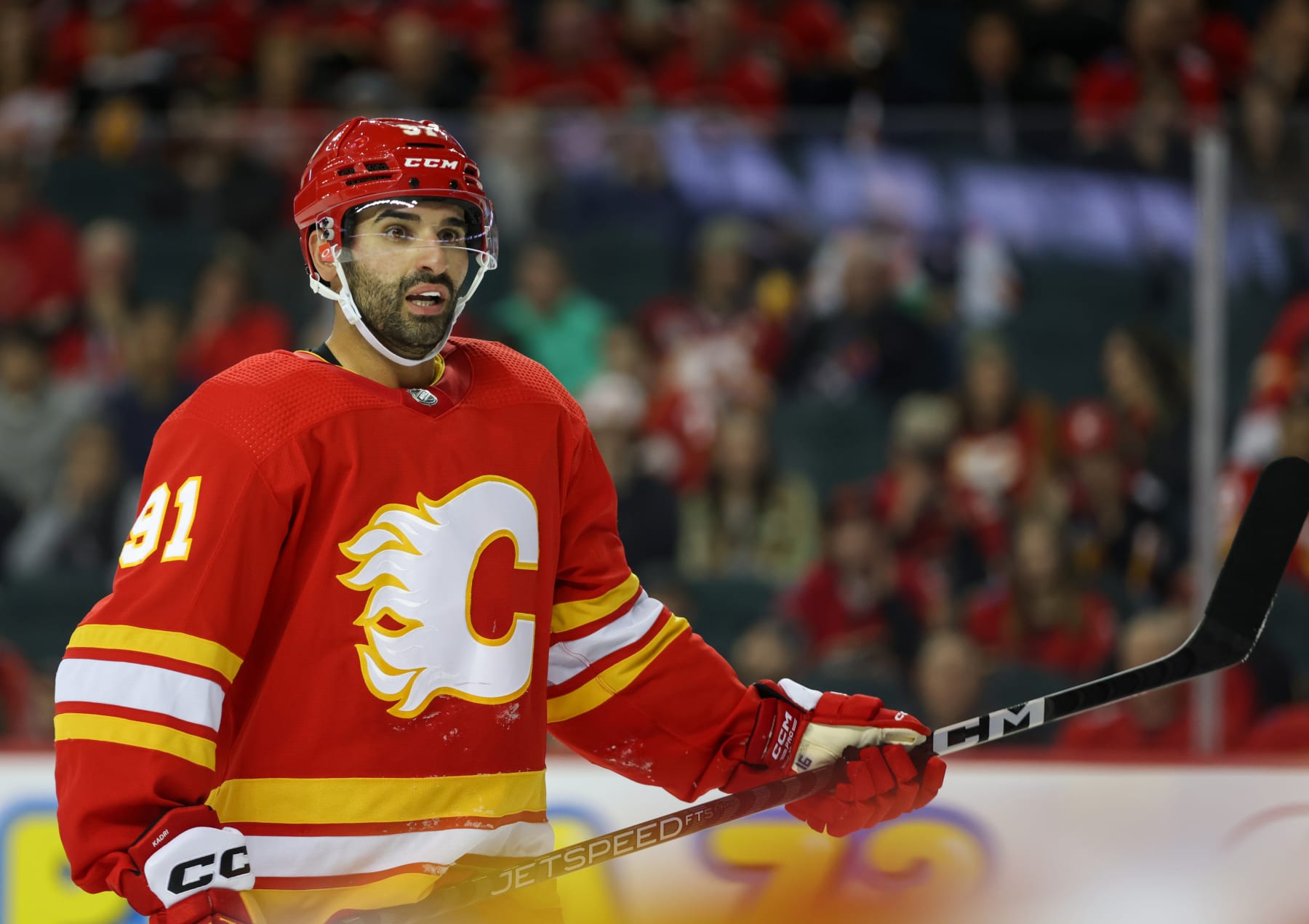
There were a lot of reasons why the Toronto Maple Leafs traded Nazem Kadri to the Colorado Avalanche for Tyson Barrie prior to the 2019-20 season.
Kadri had just been suspended again in the playoffs the previous year, significantly impacting the Maple Leafs' chances.
There was also a belief that they needed upgrade their defense, which Barrie was supposed to do.
A lot of those reasons were, and still are, valid.
But it can also be true that it is still a move that is haunting Toronto because none of it worked out. Barrie played just one disappointing season in Toronto before leaving in free agency, while Kadri went on to become a core player for a Colorado team that blossomed into elite status.
Kadri ended up being Toronto's scapegoat, who then won a championship somewhere else following a trade. Meanwhile, Toronto still can not get beyond the first round.
Vancouver Canucks: Tyler Myers Contract
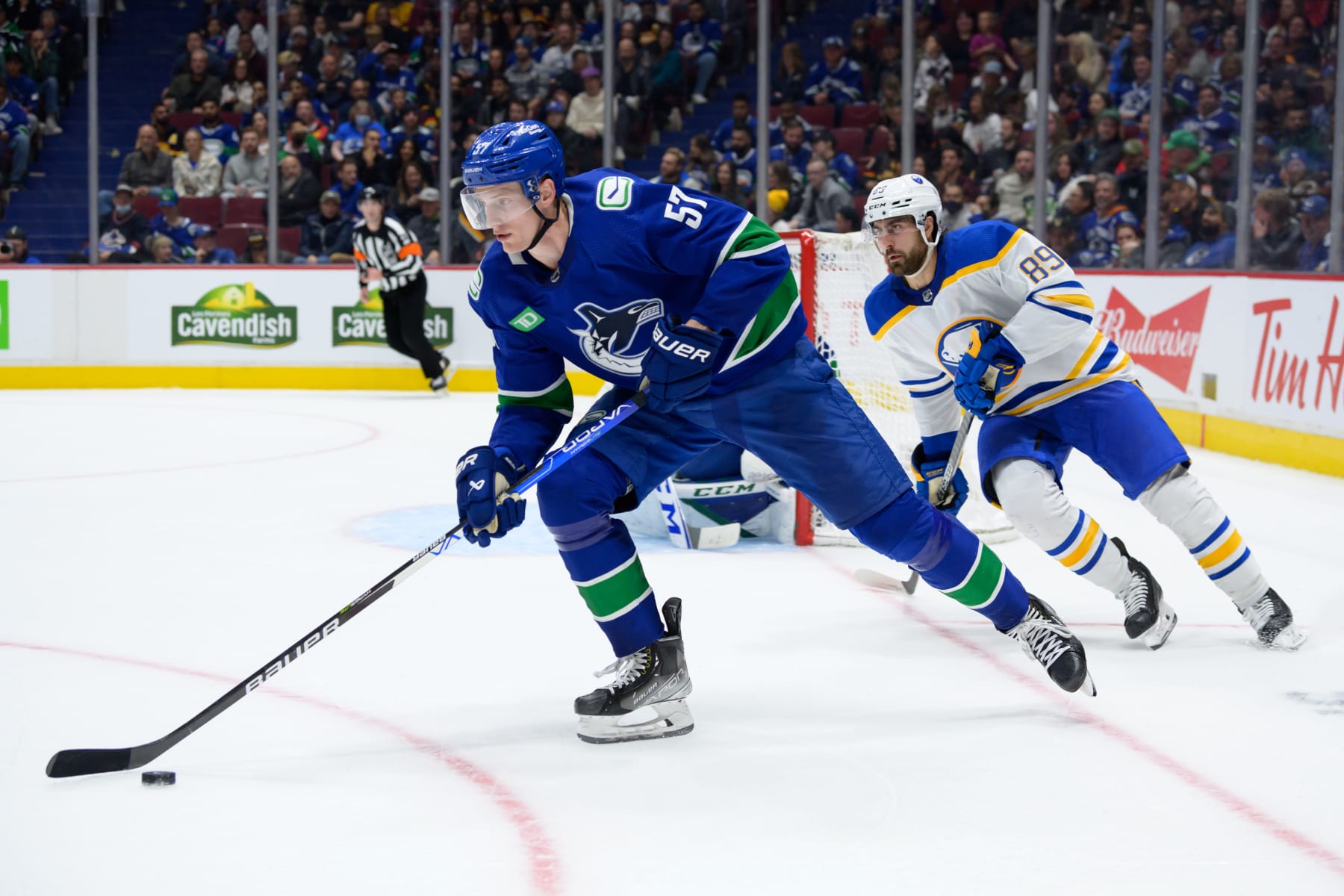
Former Canucks general manager Jim Benning made a lot of moves that did not make any sense and negatively impacted the team's long-term salary-cap situation.
The contract for Myers has been one of the most significant and damaging.
The Canucks opened free agency in 2019 by signing Myers to a five-year, $30 million contract to make him one of the focal points of their defense. It was a move that was immediately panned at the time because Myers' career had already been on a steady downward decline, and it was clear he was not somebody who you would want to build your defense around.
Myers does not provide much offense, his team consistently gets outshot and outchanced when he is on the ice, and it was a poorly timed move. It was the type of addition you would expect from a team that was in the process of trying to seriously compete for a championship, when it was clear that Vancouver was not anything close to that level.
The Myers contract, combined with the addition of Oliver Ekman-Larsson's contract, has really put a huge dent in Vancouver's salary-cap situation on defense.
Vegas Golden Knights: Trading Marc-Andre Fleury
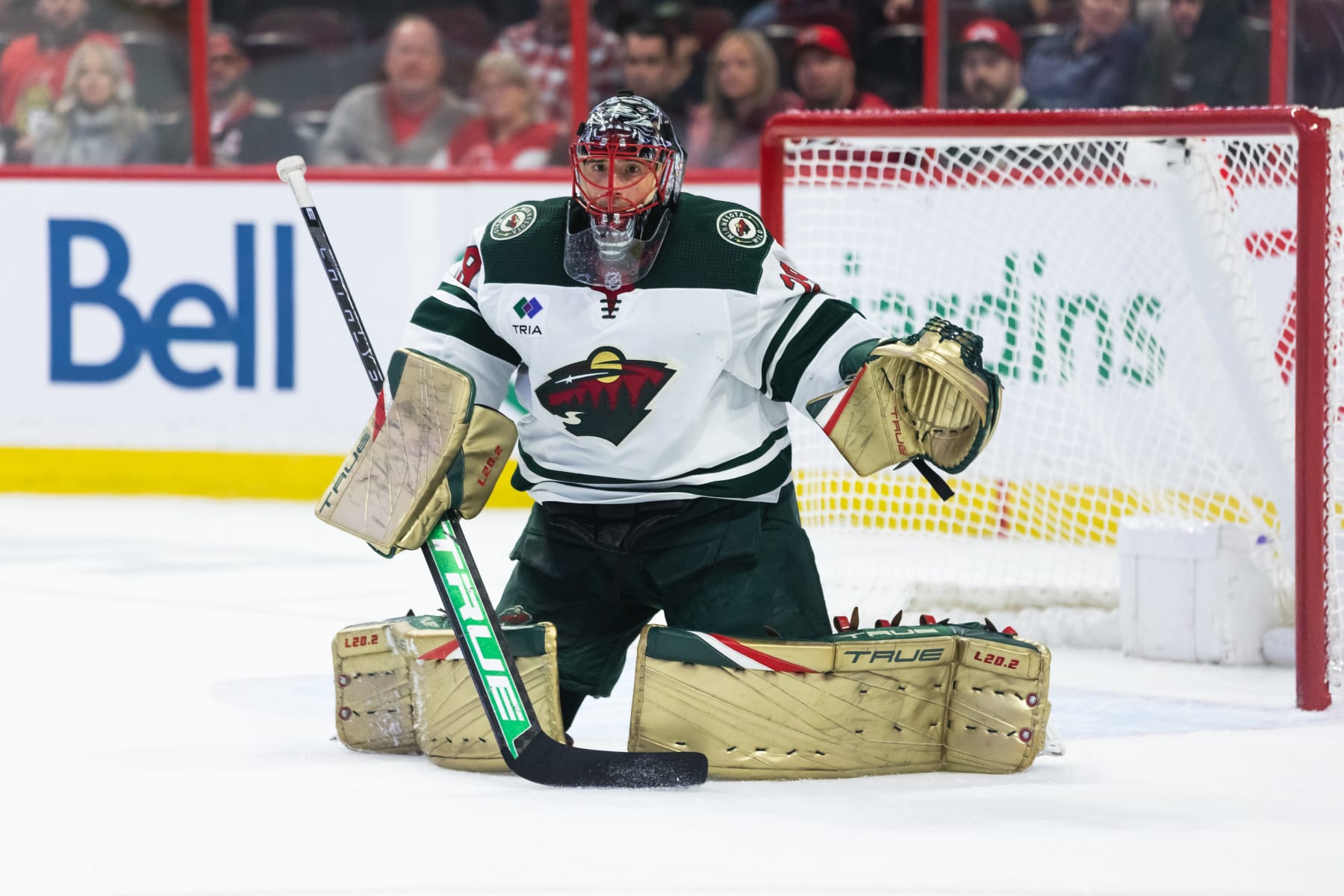
The Marc-Andre Fleury saga in Vegas turned out to be one of the wildest storylines in recent NHL history.
Starting with the team's debut in 2017-18, he was the face of the franchise, the most popular player, and a key cornerstone for the team. But when Peter DeBoer took over as head coach it was clear that he did not trust Fleury.
Vegas acquired Robin Lehner during the 2020 season, ended up starting him over Fleury, and then re-signed Lehner to a long-term deal when Fleury was still under contract to be the primary goalie.
But an injury to Lehner allowed Fleury to get his starting job back in 2020-21, and he ended up winning his first Vezina Trophy as the league's top goalie.
How did Vegas respond? It traded Fleury for nothing in a salary-dump move, again choosing Lehner over him.
It backfired horribly.
Lehner has been constantly injured ever since, he is now sidelined for the entirety of the 2022-23 season, and the Golden Knights have to figure out how to make it all work with an unproven Logan Thompson in goal.
Washington Capitals: Jonas Siegenthaler Trade
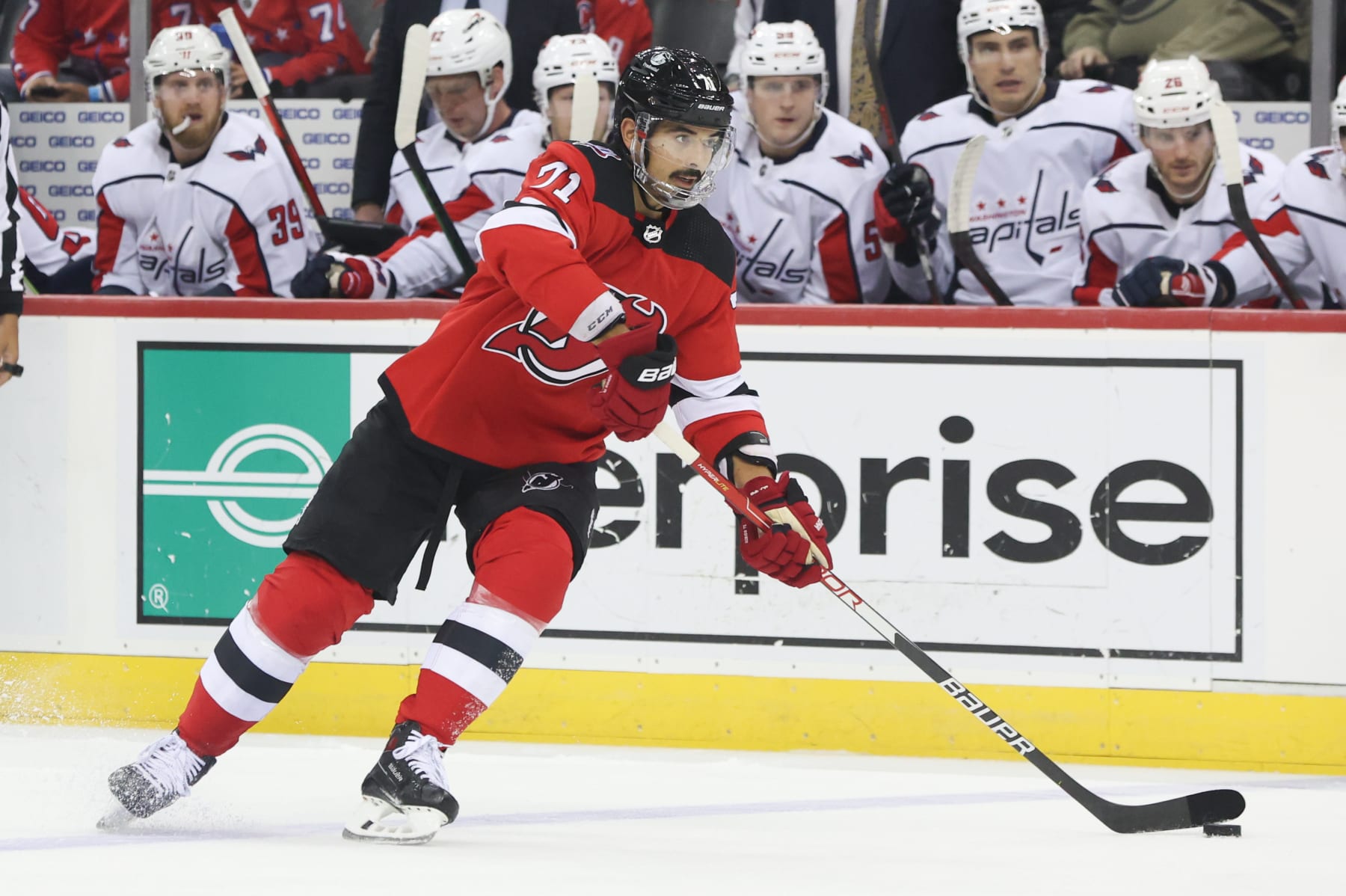
Sometimes teams just do not know what they have.
Siegenthaler initially lost out in a numbers game in Washington and never really got an opportunity to shine, and in April of 2021, the Capitals traded him to the New Jersey Devils for a third-round draft pick.
It has turned out to be a huge, huge mistake.
Siegenthaler will not provide much in the way of offense, but he has become an outstanding shutdown defenseman for the Devils and is now signed through 2028 for less than $4 million per year against the salary cap.
The Capitals could absolutely use that sort of player and value on their defense right now.
The third-round pick was used to select Ryder Korczak.
Winnipeg Jets: Patrik Laine Trade
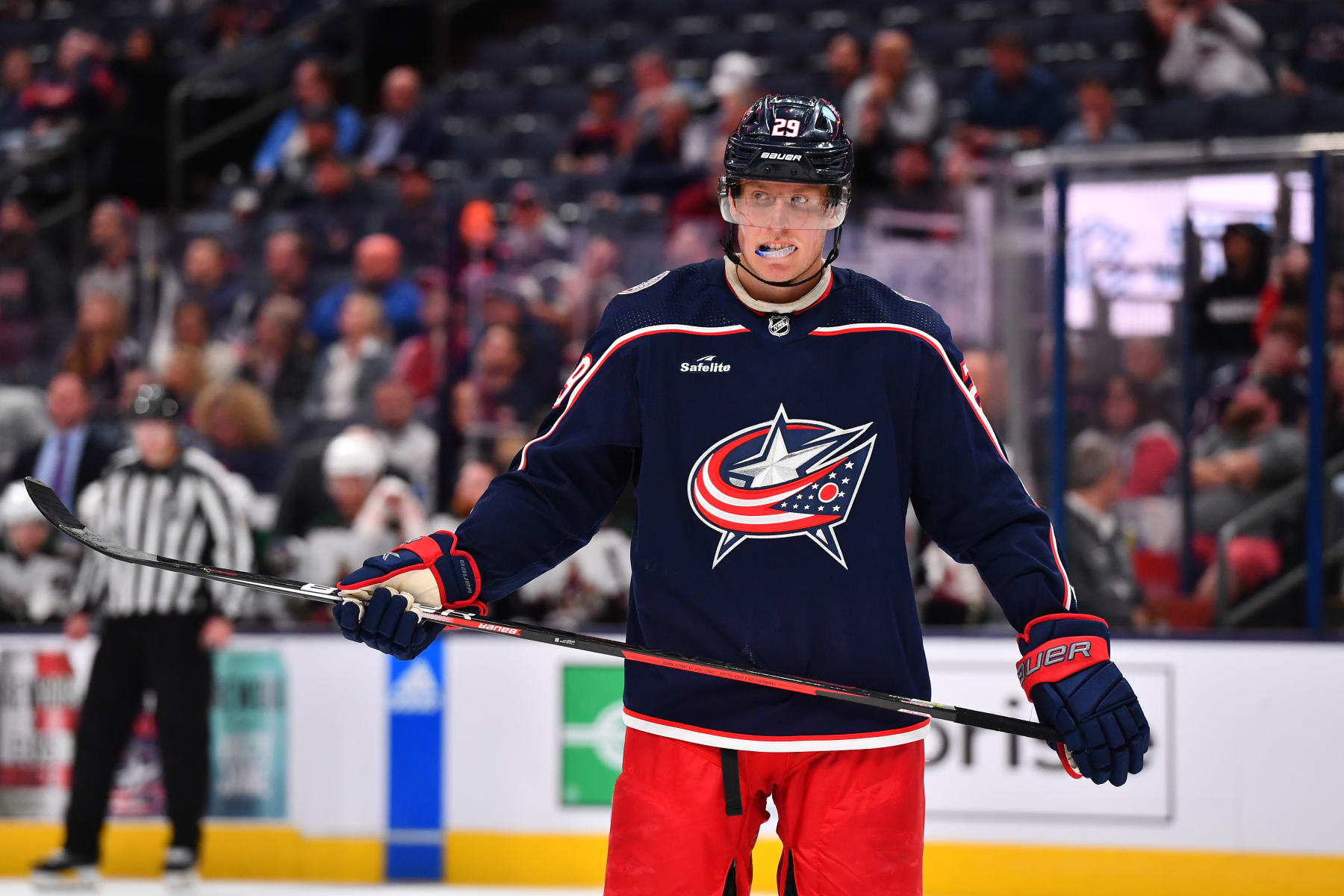
The Patrik Laine and Jack Roslovic for Pierre-Luc Dubois trade was a case of two teams swapping players who all wanted out of their current situations.
But this might still be a deal that haunts Winnipeg in the future.
Dubois is a very good player, and he does help the Jets quite a bit in the short term.
But there is a question as to whether he is going to remain in Winnipeg long term.
Laine was supposed to be a franchise player in Winnipeg, and he still has superstar ability. That's the risk for Winnipeg: that Laine blossoms into that player in Columbus, while Dubois eventually bails on Winnipeg and goes elsewhere in the next few years. Add in Roslovic, who is also a very good player, and the Jets gave up a lot of value and potential in this deal.
